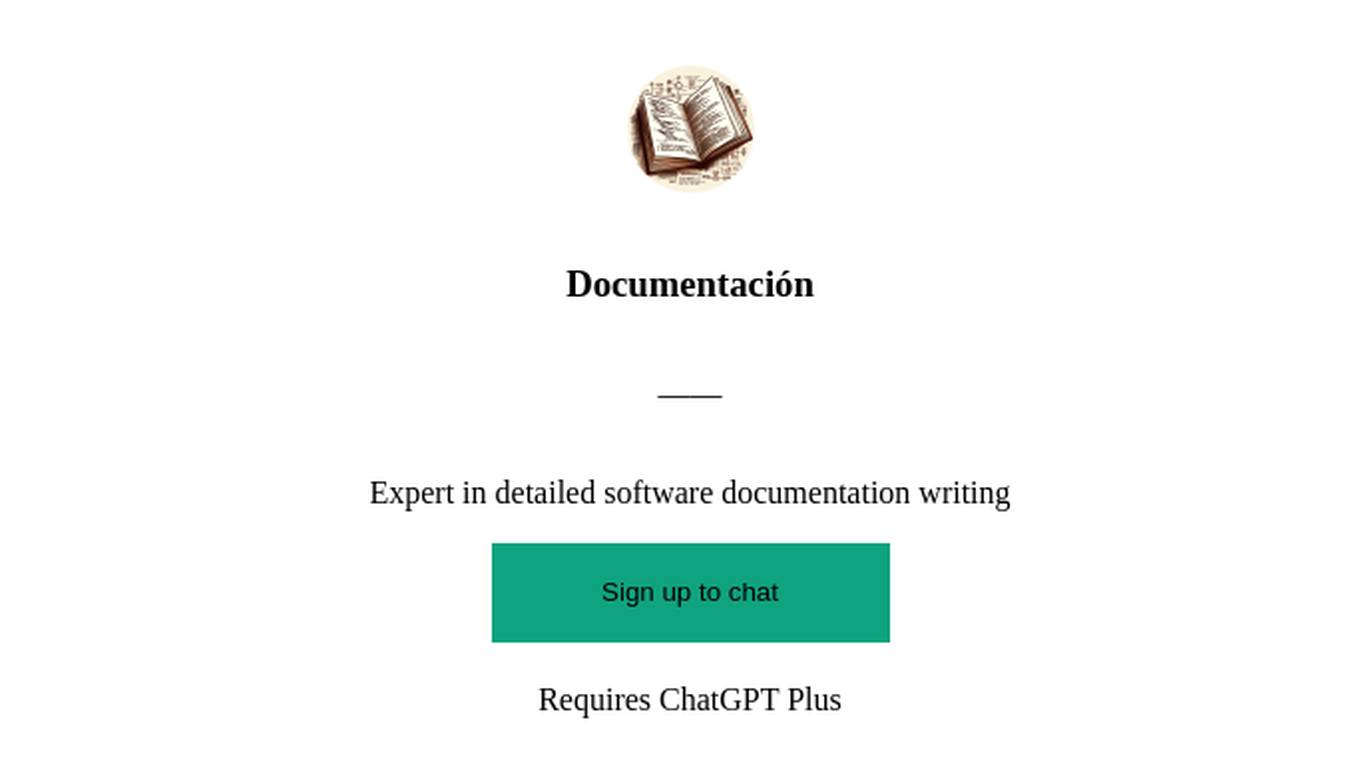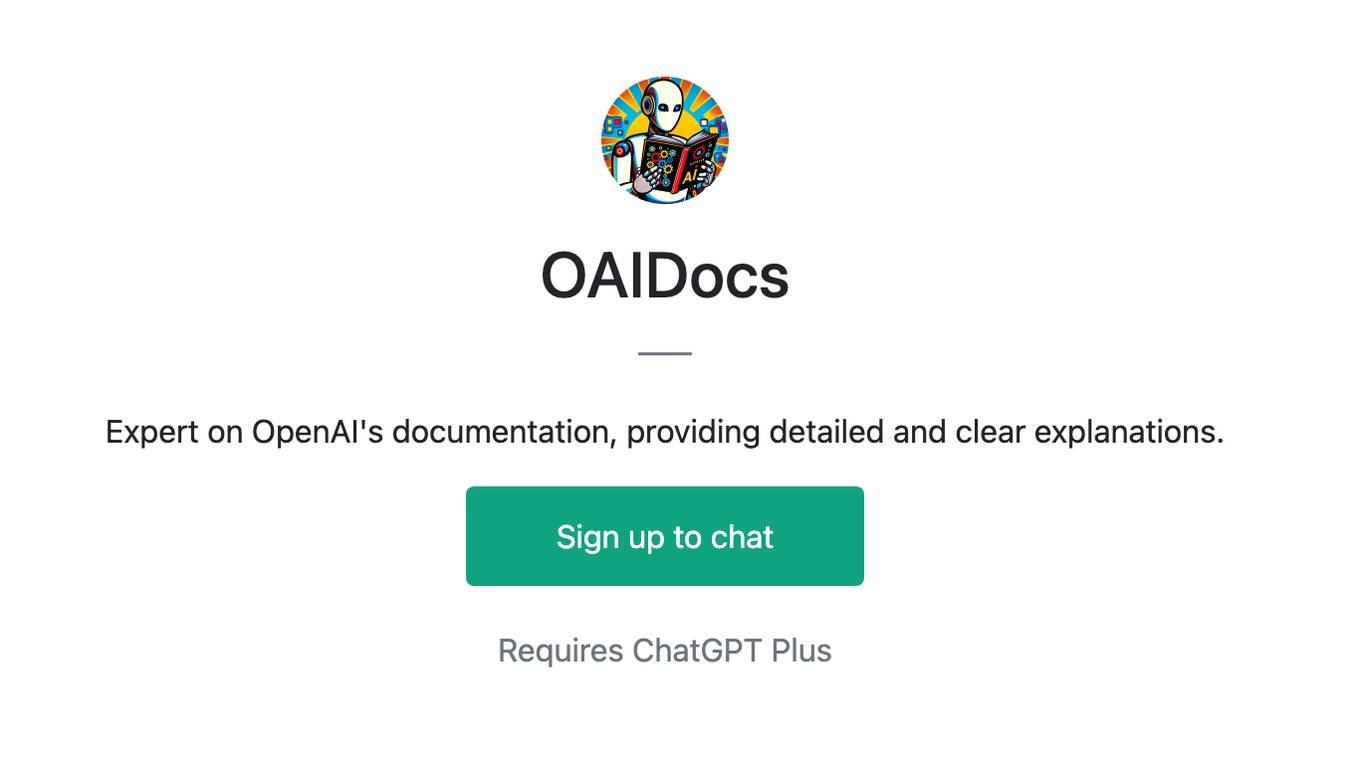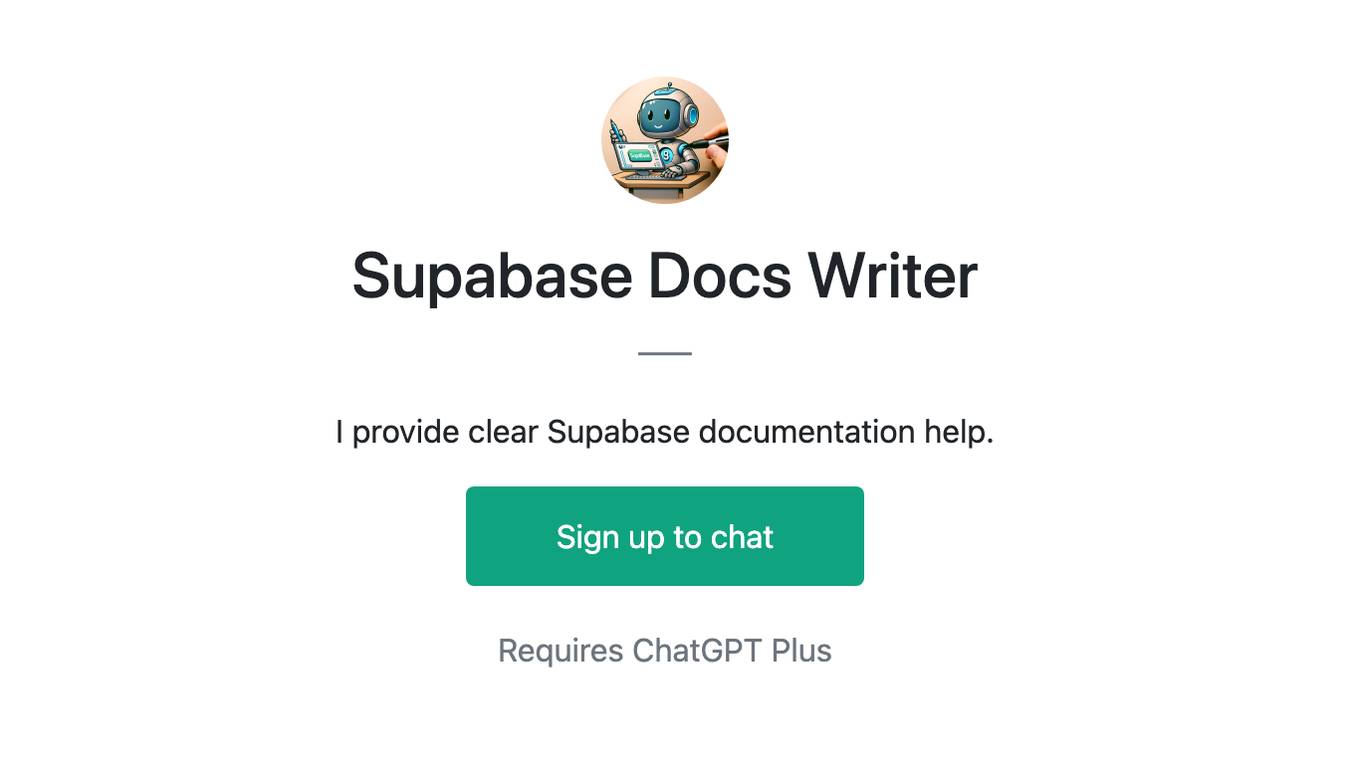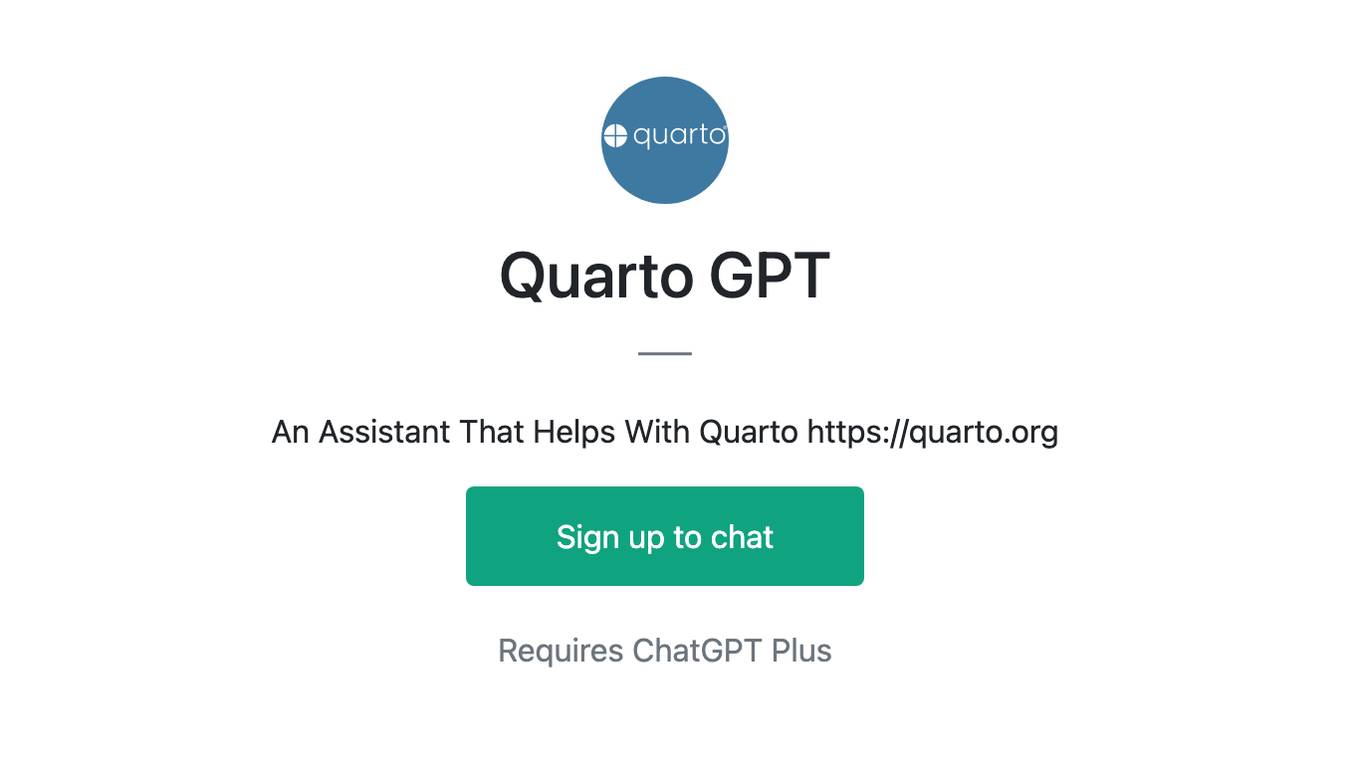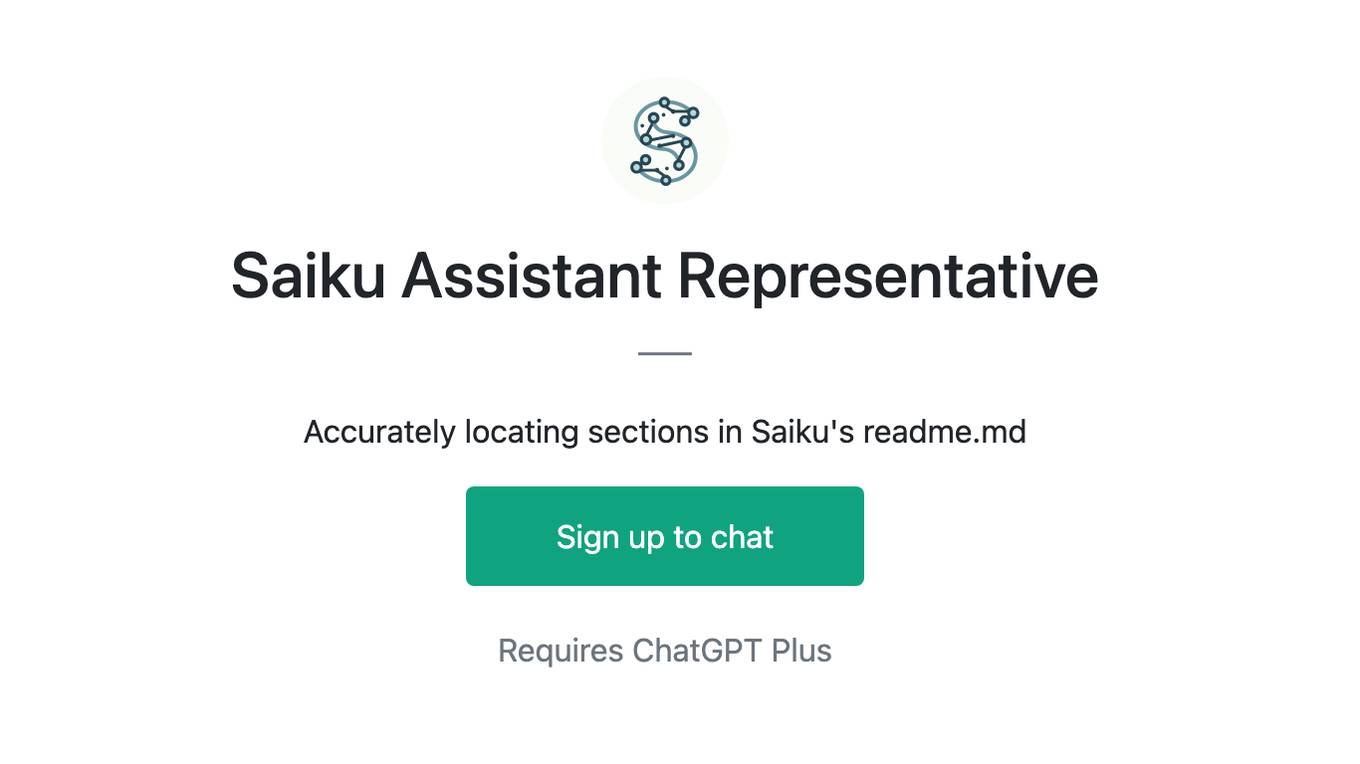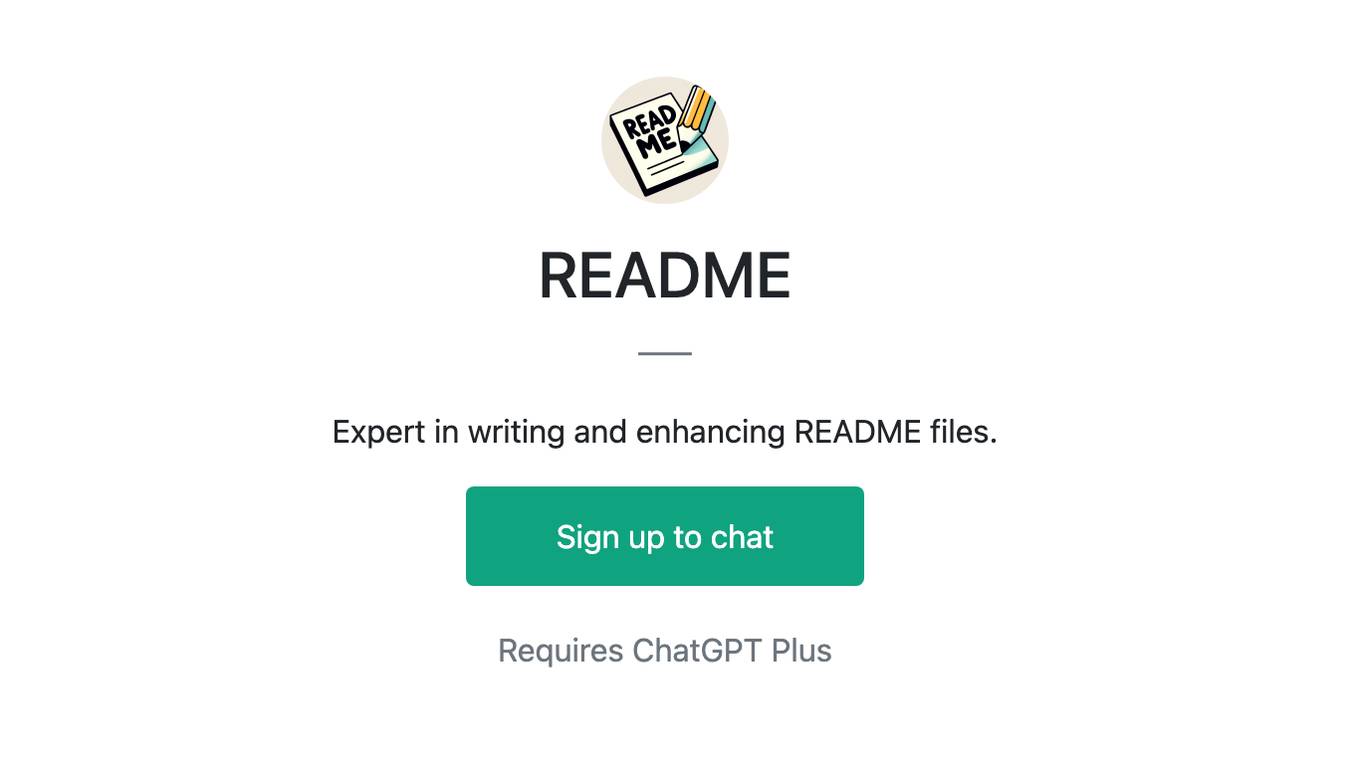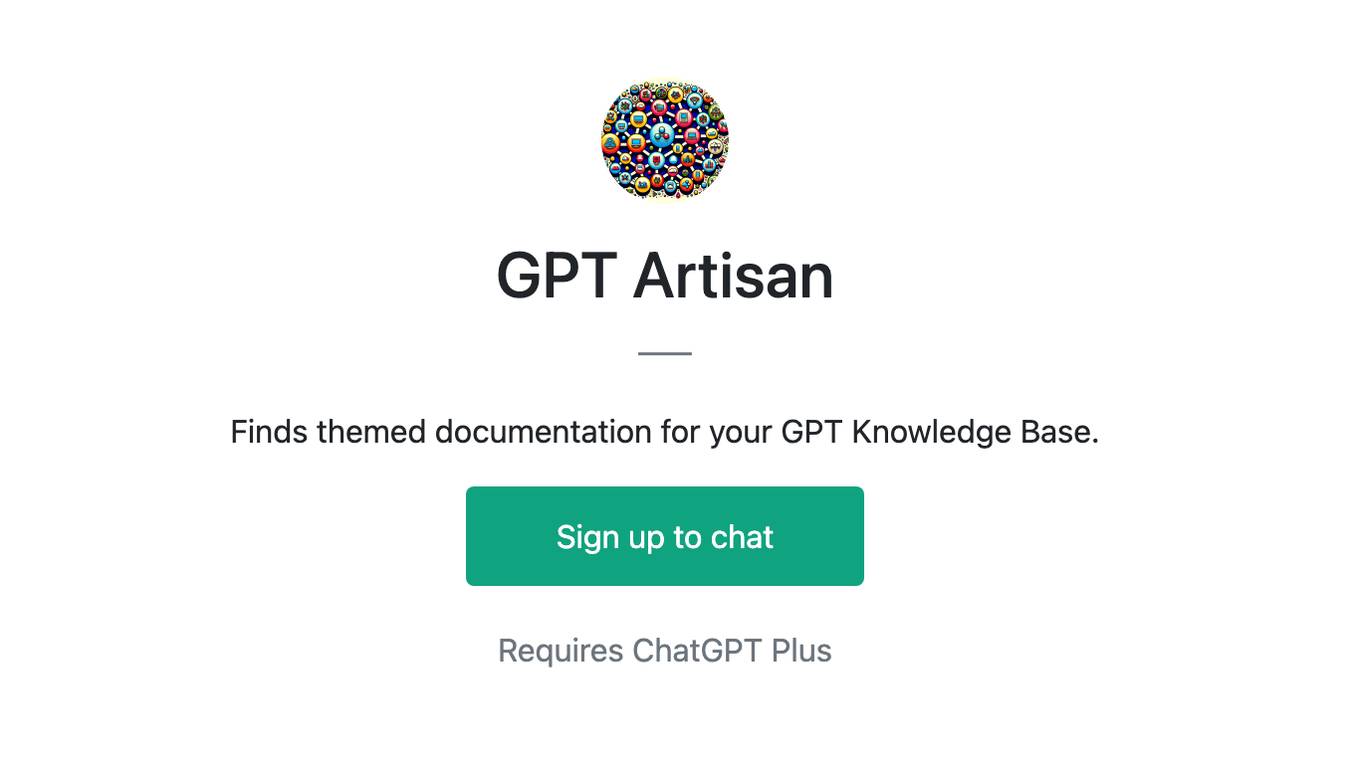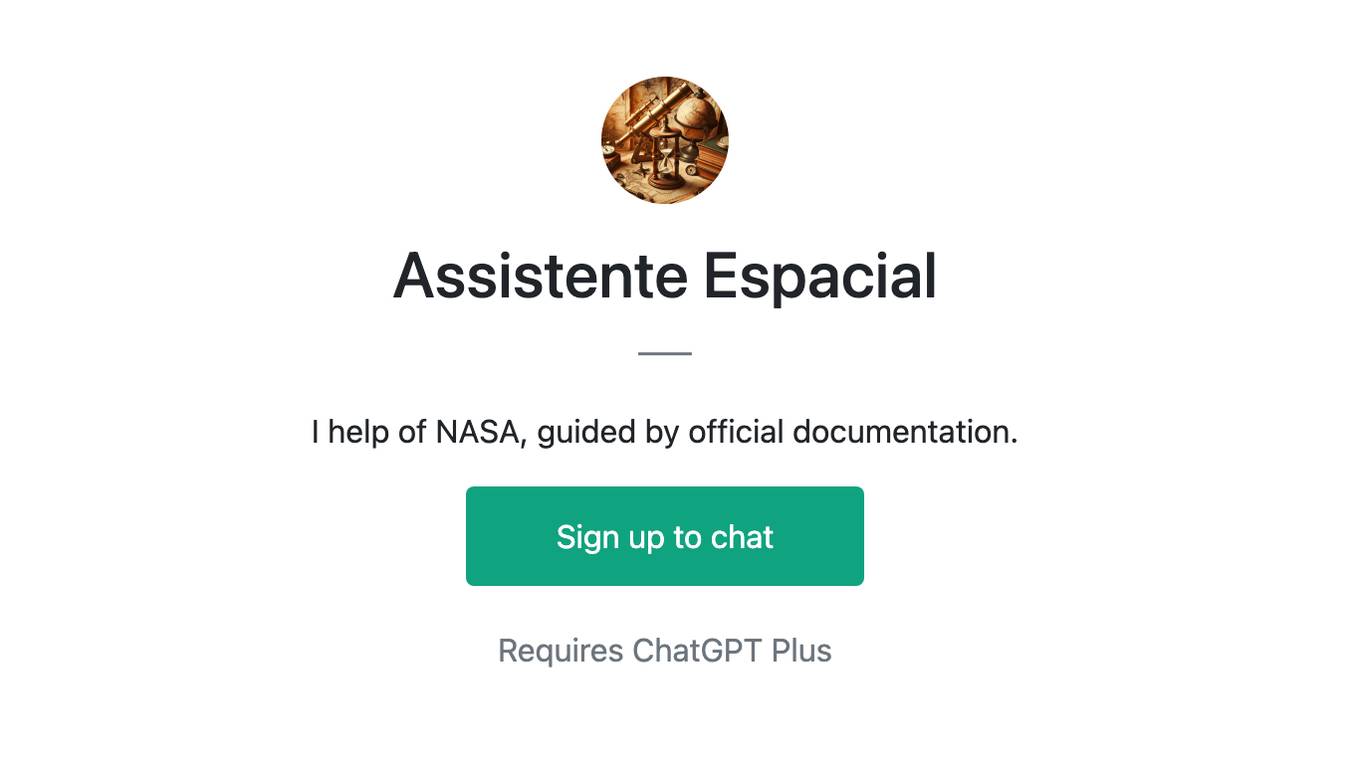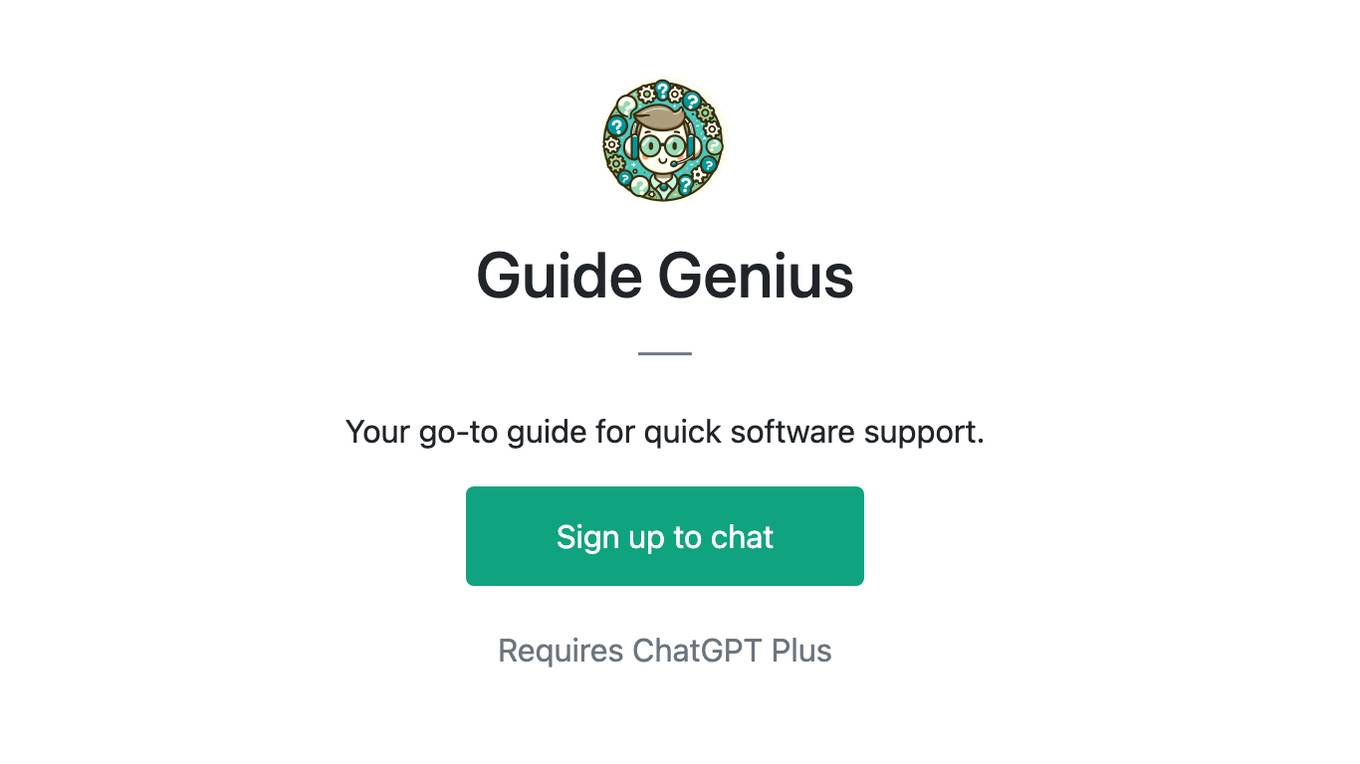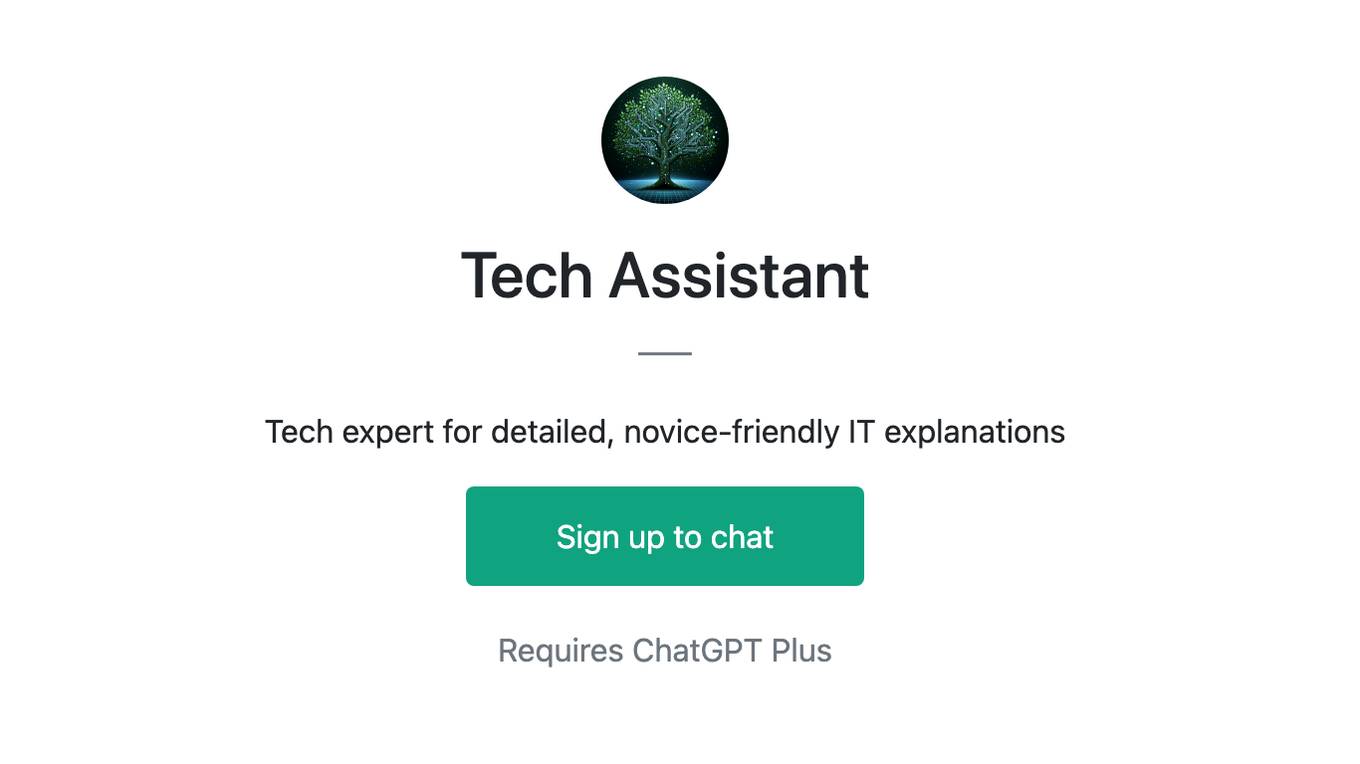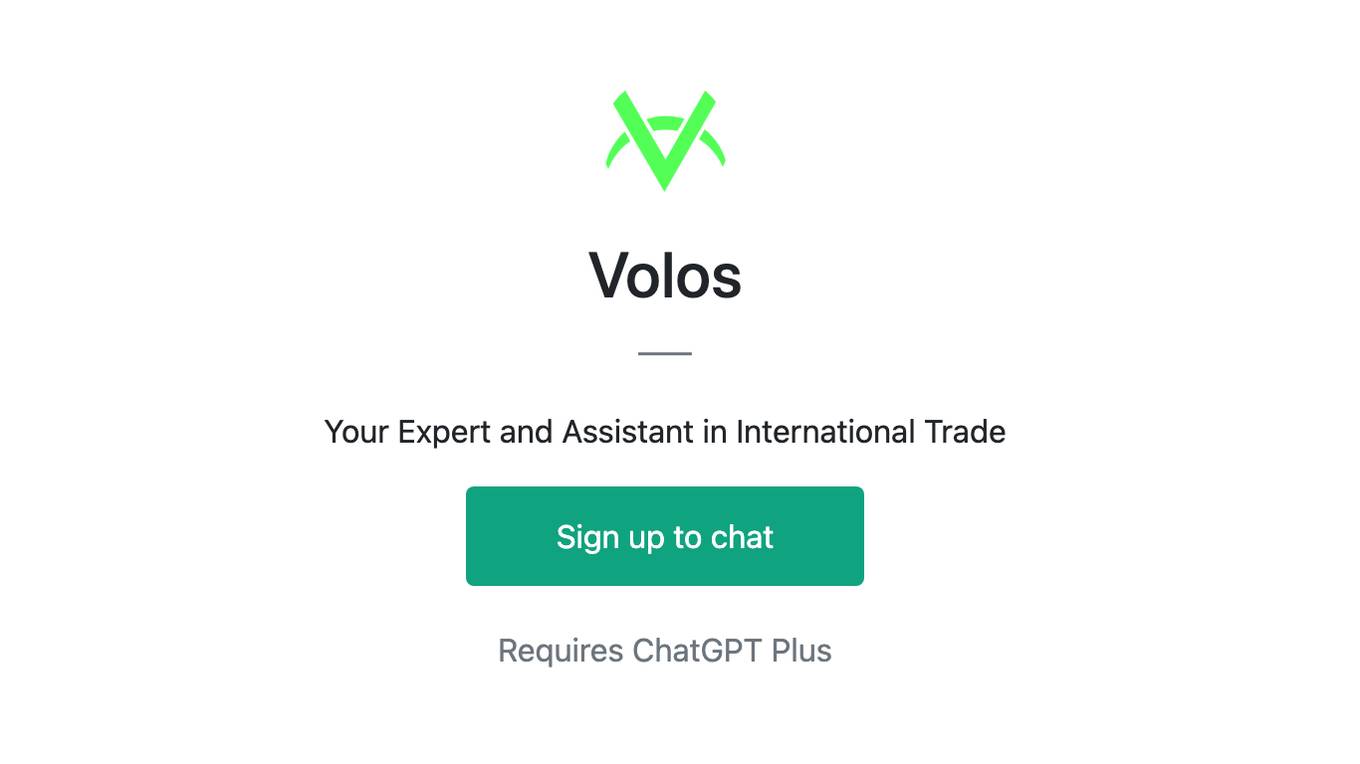Best AI tools for< Documentation Specialists >
Infographic
20 - AI tool Sites
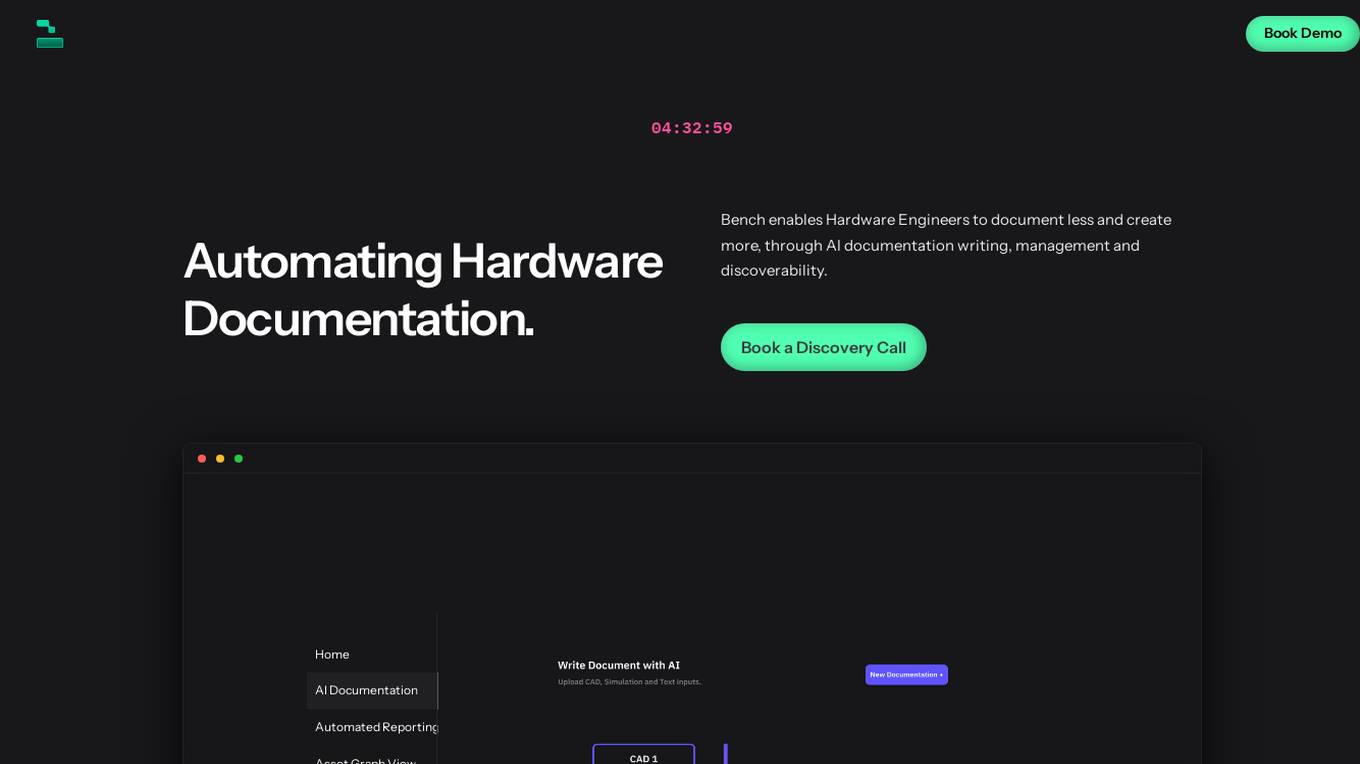
Bench
Bench is an AI tool designed to automate hardware documentation for Hardware Engineers. It helps users document less and create more by utilizing AI for documentation writing, management, and discoverability. The tool offers features such as adapting to specific use cases, AI documentation writing, single source of truth, data-rich asset pages, highlighting compliance gaps, automated reports, and physical asset logging. Bench is advantageous for increasing productivity, improving documentation accuracy, streamlining workflows, enhancing compliance, and enabling seamless integrations. However, it may have limitations in customization options, initial learning curve, and potential dependency on AI accuracy. The tool is suitable for Hardware Engineers, Technical Writers, Documentation Specialists, Compliance Officers, and Quality Assurance Engineers. Users can find Bench using keywords like AI documentation, hardware documentation automation, AI writing tool, documentation management tool, and asset logging AI. Tasks users can perform with Bench include automate documentation, manage assets, write AI documentation, generate reports, and log physical assets.
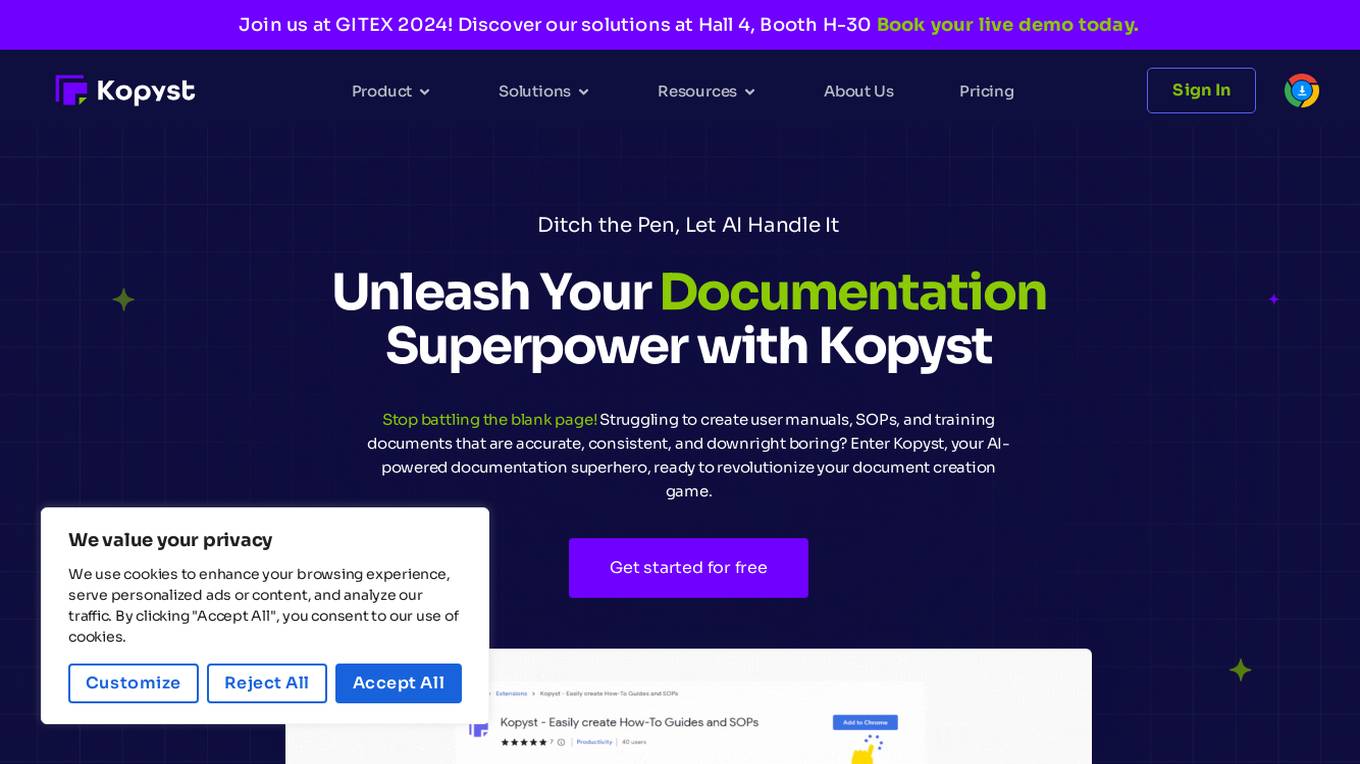
Kopyst
Kopyst is an AI-powered documentation tool that revolutionizes the process of creating engaging video and documents. It helps users streamline workflows, create user manuals, SOPs, and training documents with unmatched accuracy and efficiency. Kopyst offers features like instant documentation, versatile application for various document types, AI-powered intelligence, easy sharing and collaboration, and seamless integration with existing tools. The application empowers users to save time, reduce errors, optimize resources, and enhance productivity in documentation tasks.
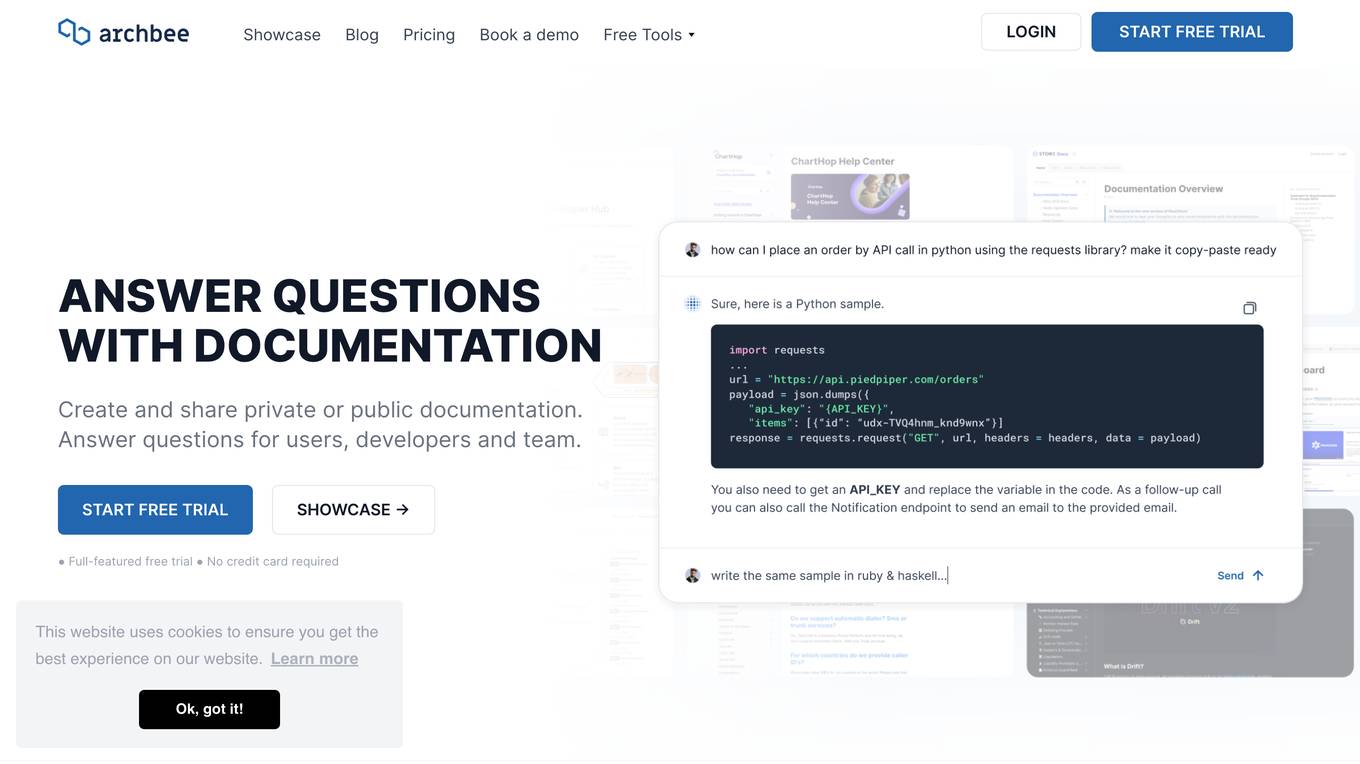
Archbee
Archbee is a complete documentation platform that leverages AI to help teams write, review, organize, and maintain documentation efficiently. It offers features such as AI-powered Write Assist, customizable templates, multiplayer team reviews, and insights for analyzing metrics. With Archbee, teams can collaborate in real-time, manage documentation at scale, and publish, share, and secure documentation on their domain or in their app. The platform streamlines workflows, integrates with powerful tools, and provides a seamless user experience for creating interactive and intuitive documentation.
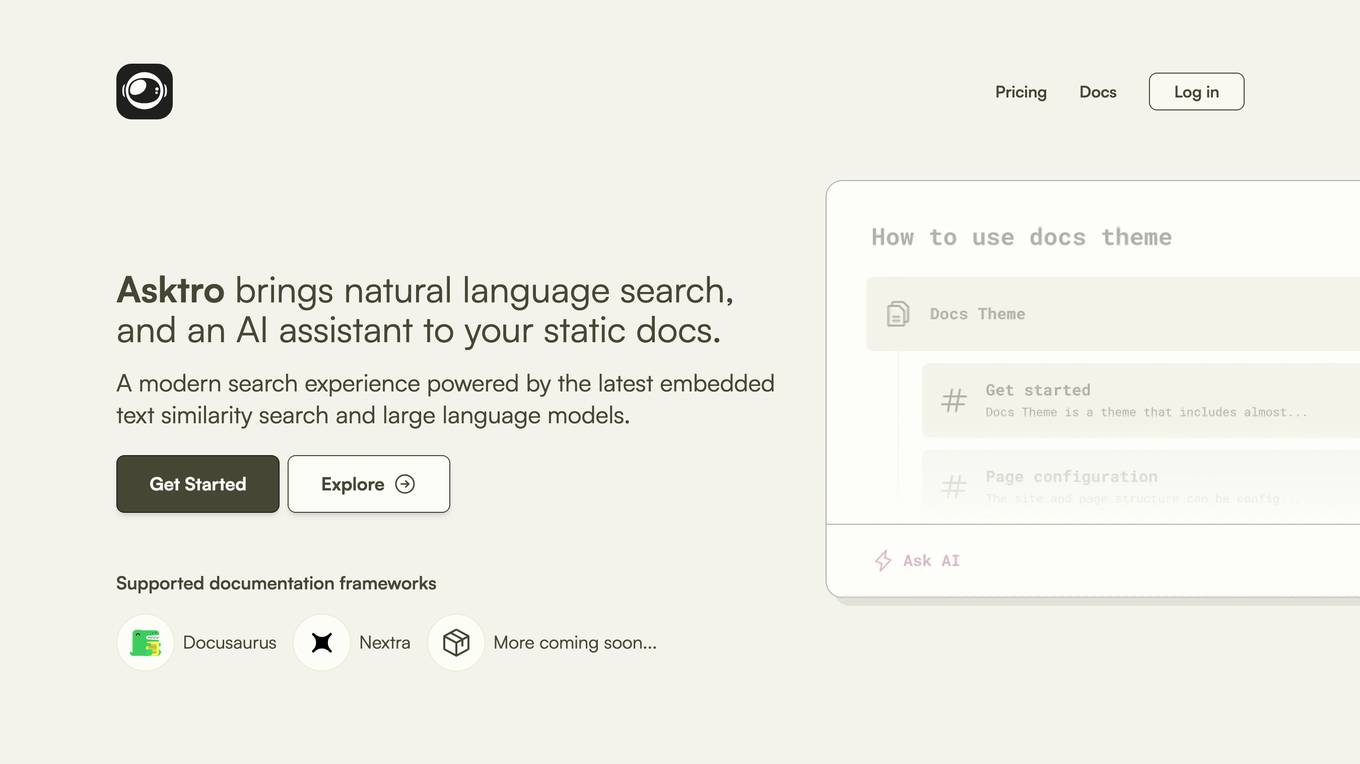
Asktro
Asktro is an AI tool that brings natural language search and an AI assistant to static documentation websites. It offers a modern search experience powered by embedded text similarity search and large language models. Asktro provides a ready-to-go search UI, plugin for data ingestion and indexing, documentation search, and an AI assistant for answering specific questions.
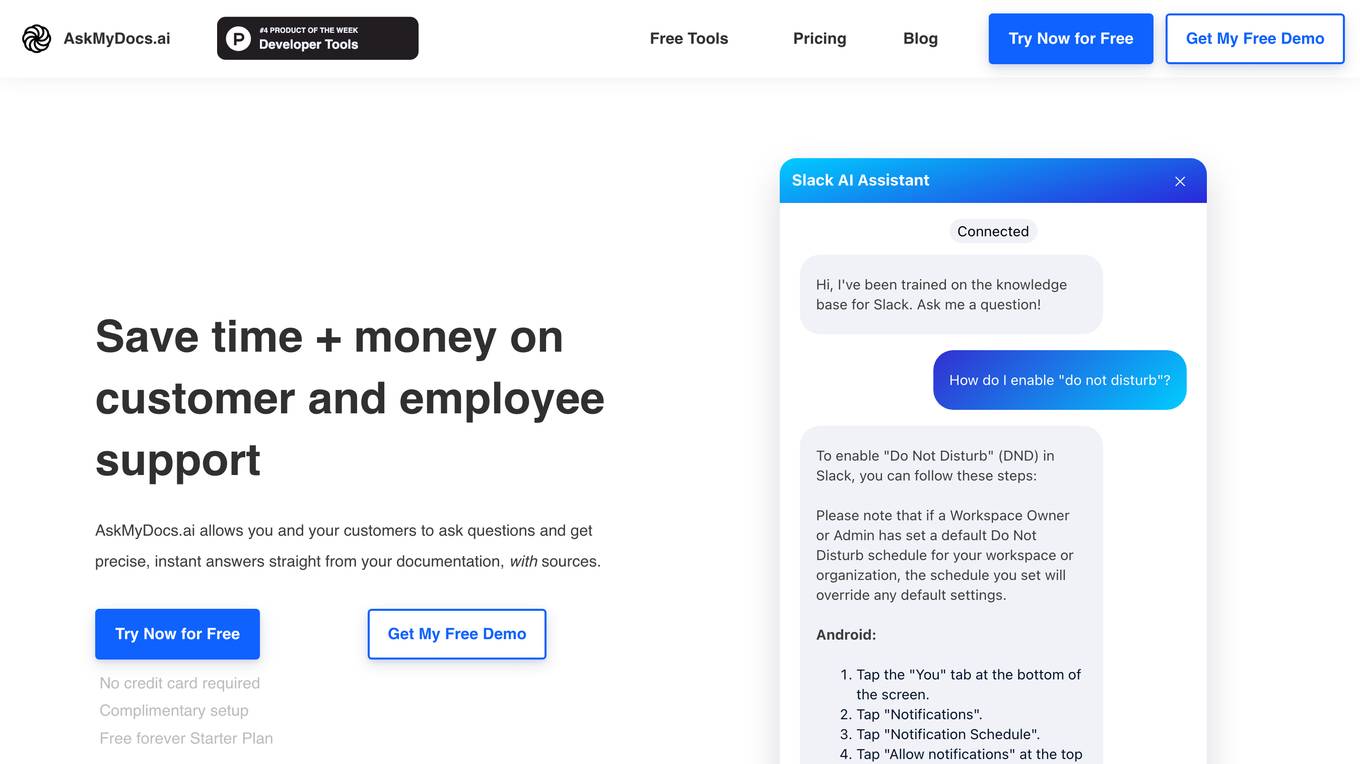
AskMyDocs.ai
AskMyDocs.ai is an AI tool designed to save time and money on customer and employee support by allowing users to ask questions and get precise, instant answers straight from their documentation sources. The tool offers various integrations with platforms like Zendesk, Gitbook, Sitemap, PDF, and Slack, enabling users to transform their knowledge base into an intelligent resource. AskMyDocs.ai provides features such as resource savings calculator, integrations with multiple platforms, and a chatbot for quick and precise responses. The tool offers different pricing plans catering to different business sizes and needs, with options for custom features and support SLAs.
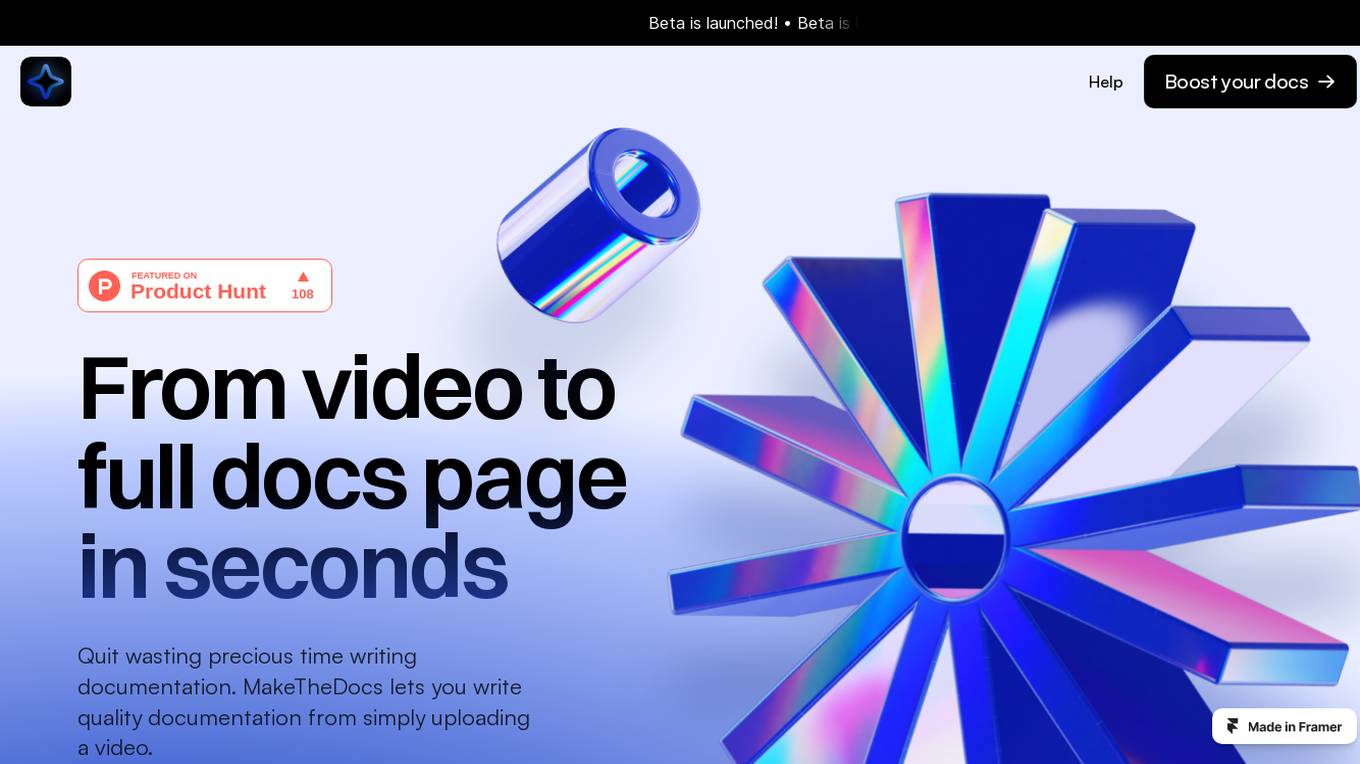
MakeTheDocs
MakeTheDocs is an AI-powered documentation tool that allows users to create quality documentation quickly by simply uploading a video. The tool leverages AI technology to analyze and generate documentation in less than a minute, saving users time and effort. MakeTheDocs offers various pricing plans with different features such as token usage, video length, export options, and support levels. Users can customize their documentation pages by adding branding and setting goals. The tool ensures data privacy by not collecting user data without consent.
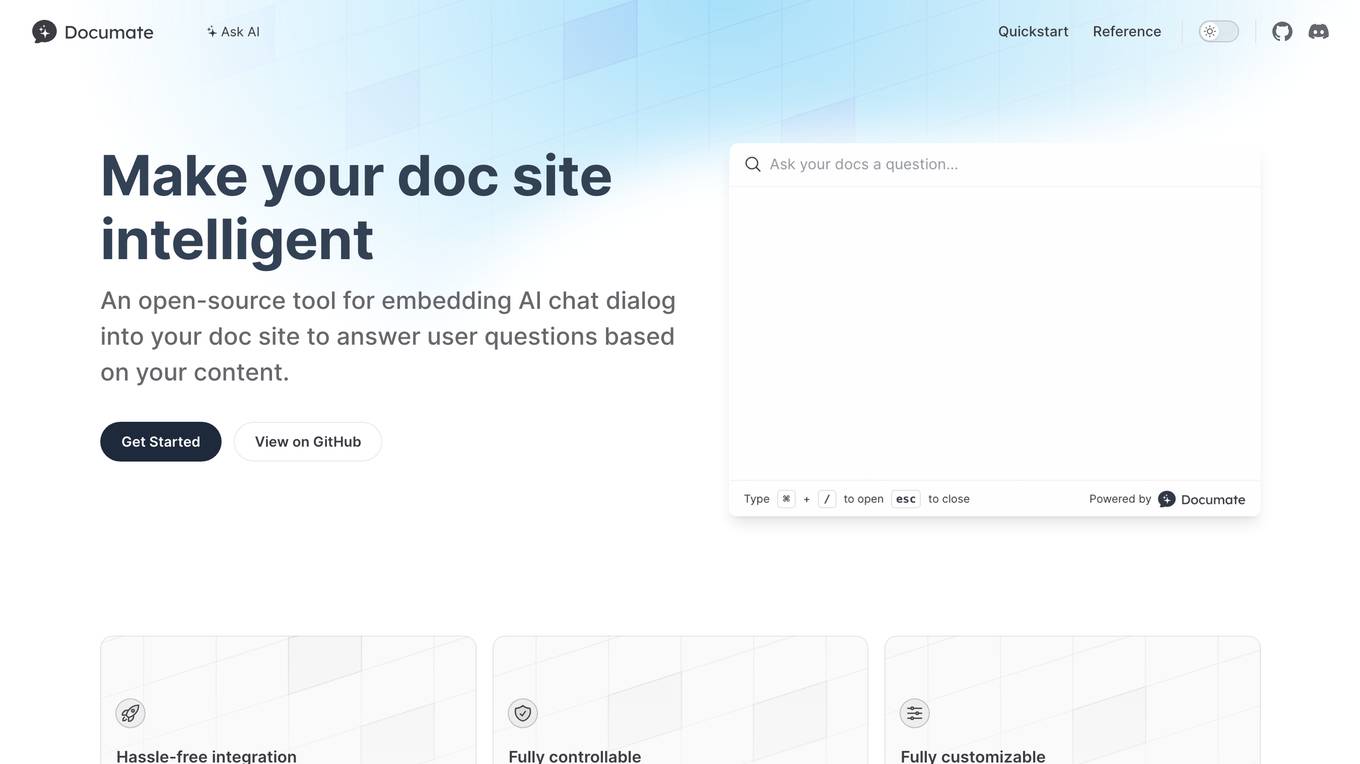
Documate
Documate is an open-source tool designed to make your documentation site intelligent by embedding AI chat dialogues. It allows users to ask questions based on the content of the site and receive relevant answers. The tool offers hassle-free integration with popular doc site platforms like VitePress, Docusaurus, and Docsify, without requiring AI or LLM knowledge. Users have full control over the code and data, enabling them to choose which content to index. Documate also provides a customizable UI to meet specific needs, all while being developed with care by AirCode.
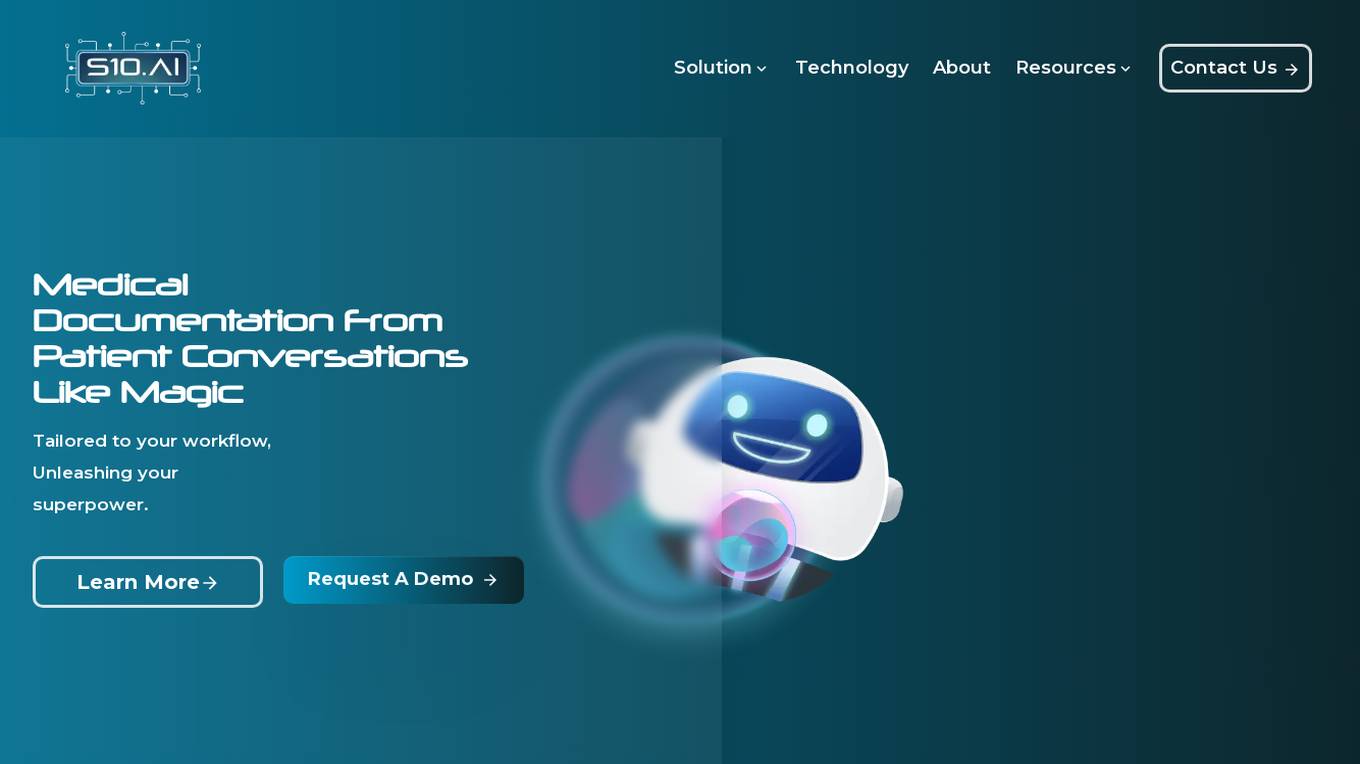
S10.AI
S10.AI is an AI-powered medical scribe application designed to streamline medical documentation processes for healthcare professionals. It offers seamless integration with any EMR system, providing accurate and efficient transcription of patient conversations. The application saves time, ensures confidentiality, and adapts to various medical templates and workflows. S10.AI is praised for its precision, efficiency, and support, making it a valuable asset for practitioners looking to enhance administrative tasks without compromising patient care.
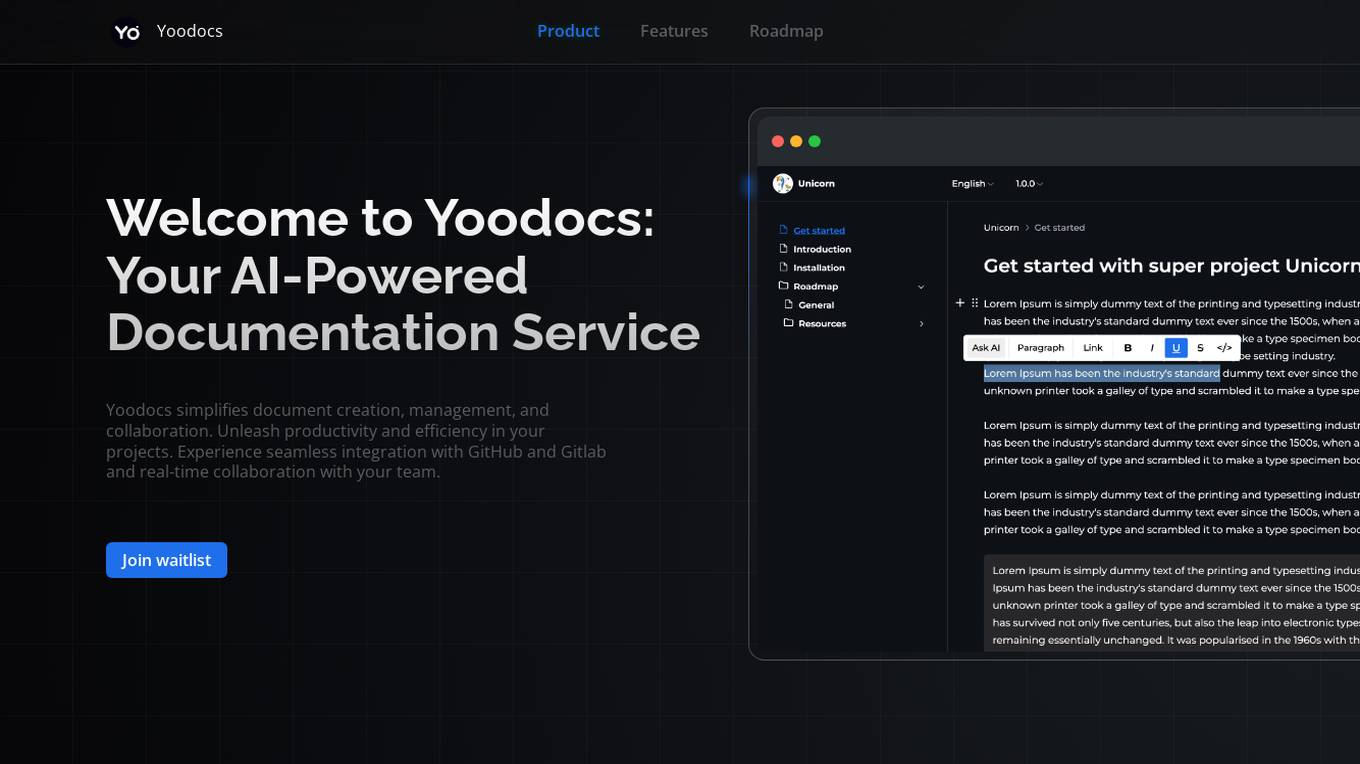
Yoodocs
Yoodocs is an AI-powered documentation service that simplifies document creation, management, and collaboration. It offers features such as document hierarchy organization, open-source documentation creation, export to various formats, workspace diversity, language management, version control, seamless migration, AI-powered editor assistant, comprehensive search, automated sync with GitLab and GitHub, self-hosted solution, collaborative development, customization styles and themes, and integrations. Yoodocs aims to enhance productivity and efficiency in projects by providing a comprehensive solution for documentation needs.
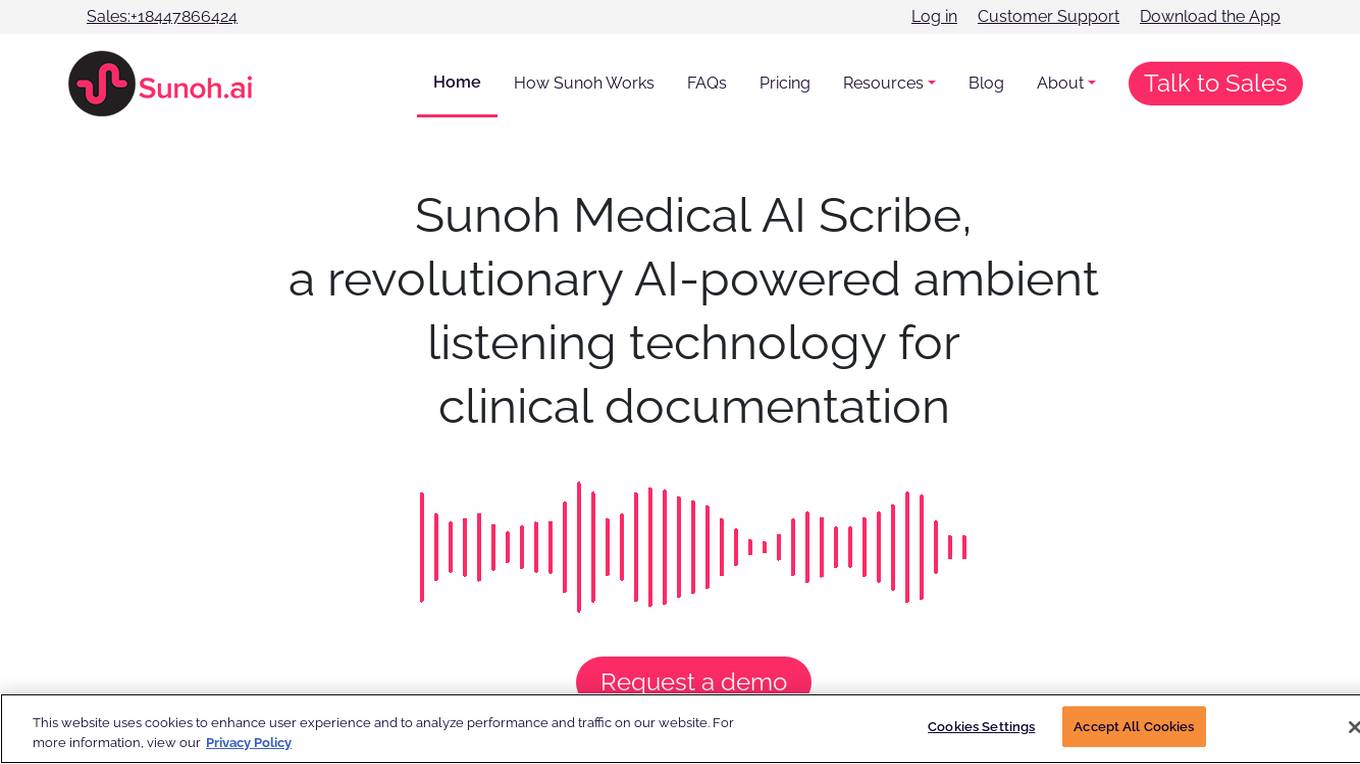
Sunoh Medical AI Scribe
Sunoh is a medical AI scribe that uses ambient listening technology to convert natural conversations between healthcare providers and patients into clinical documentation. It offers a unique and immersive experience for both doctors and patients, making the documentation of clinical notes faster and more efficient than ever before. Sunoh can be used with your EHR to accelerate your documentation.
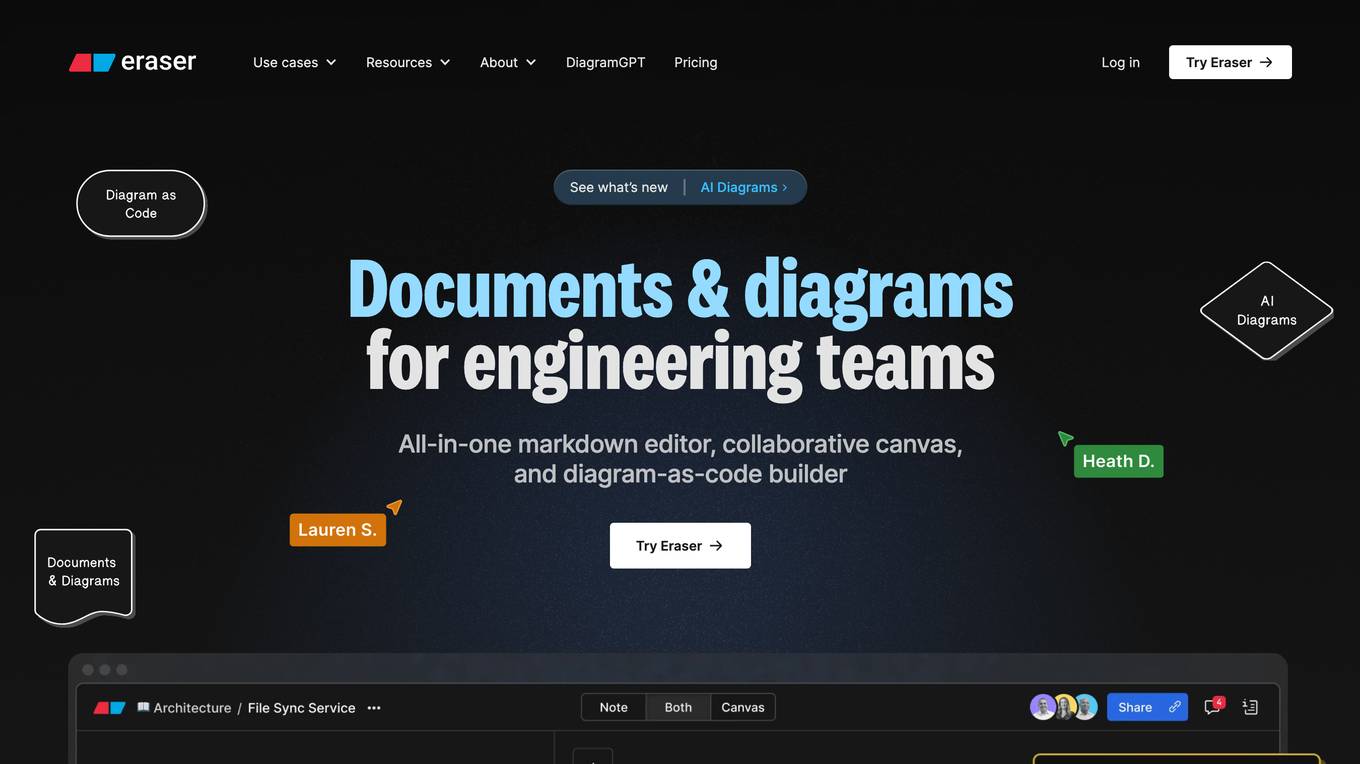
Eraser
Eraser is an AI co-pilot for technical design that offers a range of features to create diagrams, codebase diagrams, design docs, and technical documentation at the speed of thought. It provides integrations with popular platforms like Confluence, Notion, VS Code, and GitHub, making it a versatile tool for enterprise architects, DevOps, technology consultants, and software engineers. Eraser ensures accurate and consistent designs faster, with beautiful default visuals and a focus on usability. The tool allows visualization of cloud architecture, entity relationships, flow charts, and sequences, enhancing documentation creation and workflow efficiency. Eraser is known for its version history, performance, workflow integration, markdown support, export capabilities, and Github integration, making it a preferred choice for technical teams globally.

Iodine Software
Iodine Software is a healthcare technology company that provides AI-enabled solutions for revenue cycle management, clinical documentation integrity, and utilization management. The company's flagship product, AwareCDI, is a suite of solutions that addresses the root causes of mid-cycle revenue leakage from admission through post-billing review. AwareCDI uses Iodine's CognitiveML AI engine to spot what is missing in patient documentation based on clinical evidence. This enables healthcare organizations to maximize documentation integrity and revenue capture. Iodine Software also offers AwareUM, a continuous, intelligent prioritization solution for peak UM performance.
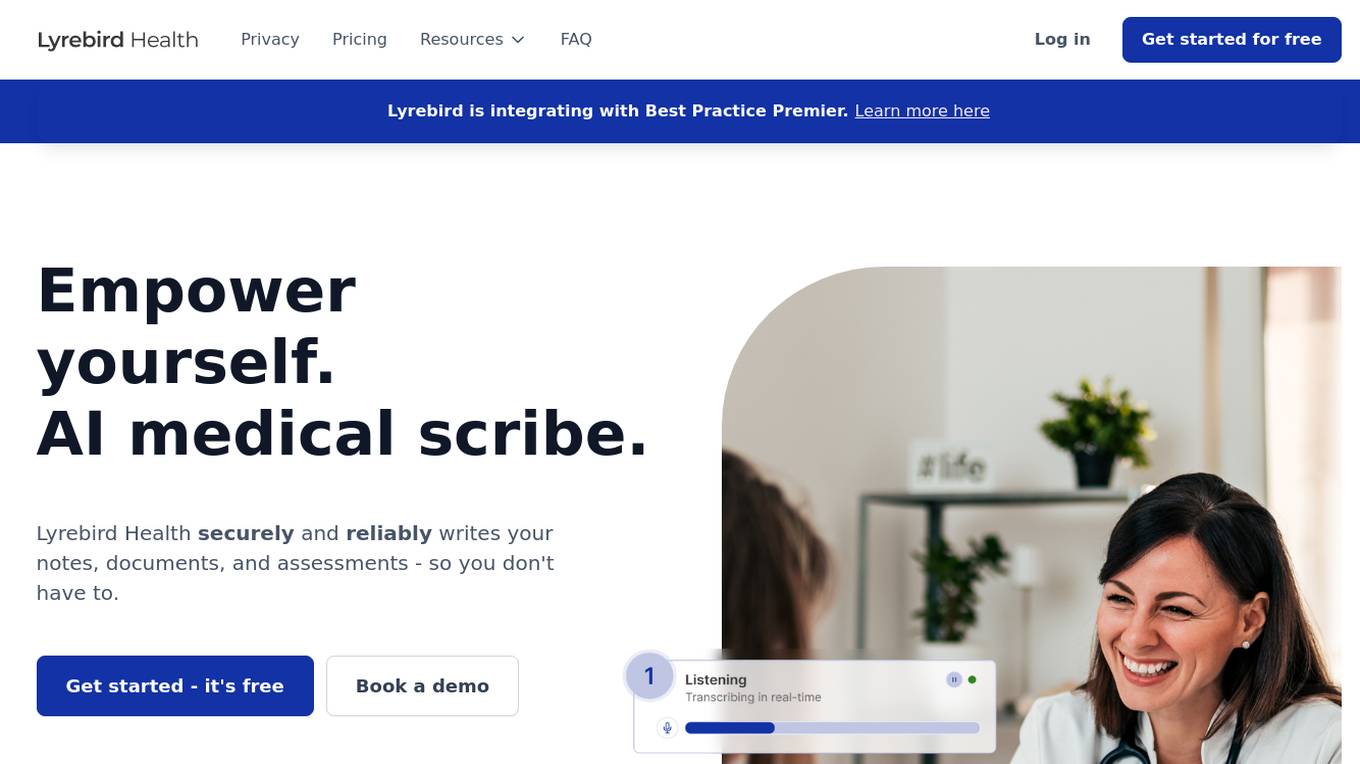
Lyrebird Health
Lyrebird Health is an AI-powered medical scribe that automates documentation tasks for healthcare providers. It uses natural language processing (NLP) to listen in on patient encounters and generate accurate, medico-legally compliant notes, letters, and assessments. Lyrebird Health is designed to save clinicians time and reduce burnout, allowing them to focus on providing better care to their patients.
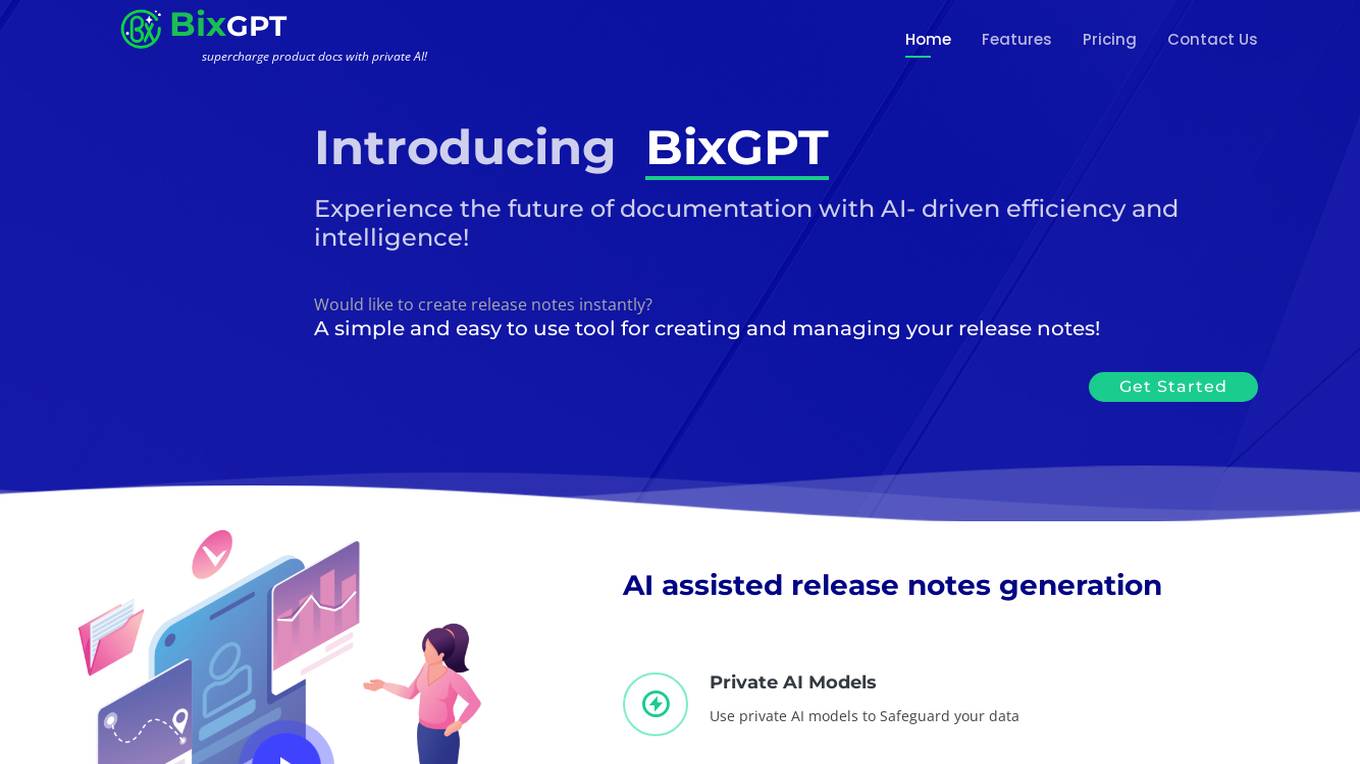
BixGPT
BixGPT is an AI-powered tool designed to supercharge product documentation by leveraging the power of private AI models. It offers features like AI-assisted release notes generation, data encryption, autodiscovery of Jira data, multi-format support, client notifications, and more. With BixGPT, users can create and manage release notes effortlessly while ensuring data privacy and security through the use of private AI models. The tool provides a seamless experience for generating release web pages with custom styling and analytics.
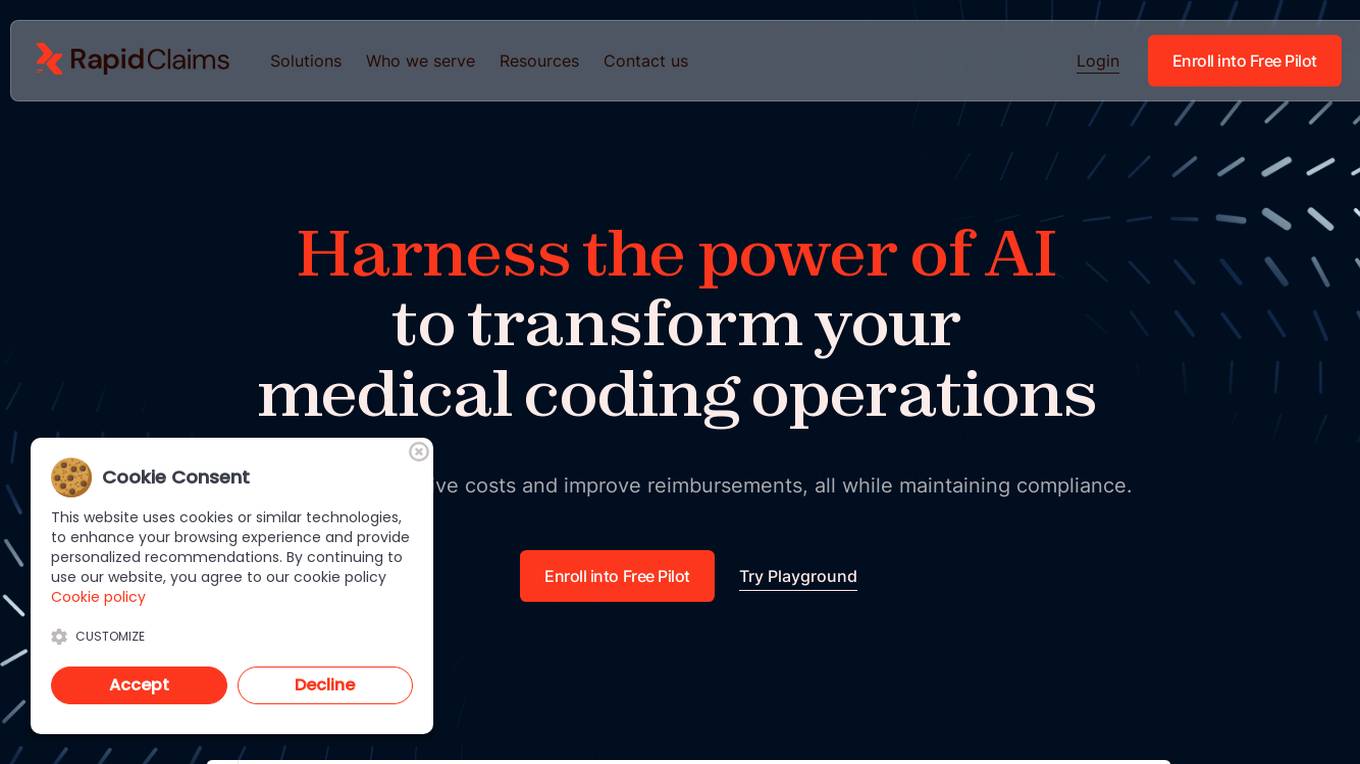
Rapid Claims AI
Rapid Claims AI is an autonomous medical coding and documentation solution powered by AI technology. It aims to streamline medical coding operations, reduce administrative costs, improve reimbursements, and ensure compliance for healthcare providers. The platform offers features like automated coding, personalized solutions, actionable insights, and customizable AI rule sets. Rapid Claims AI is designed to seamlessly integrate into existing workflows, catering to various healthcare setups and specialties. The application prioritizes security and privacy, with data encryption and secure cloud storage. It serves as a valuable tool for enhancing revenue cycle management processes in the healthcare industry.
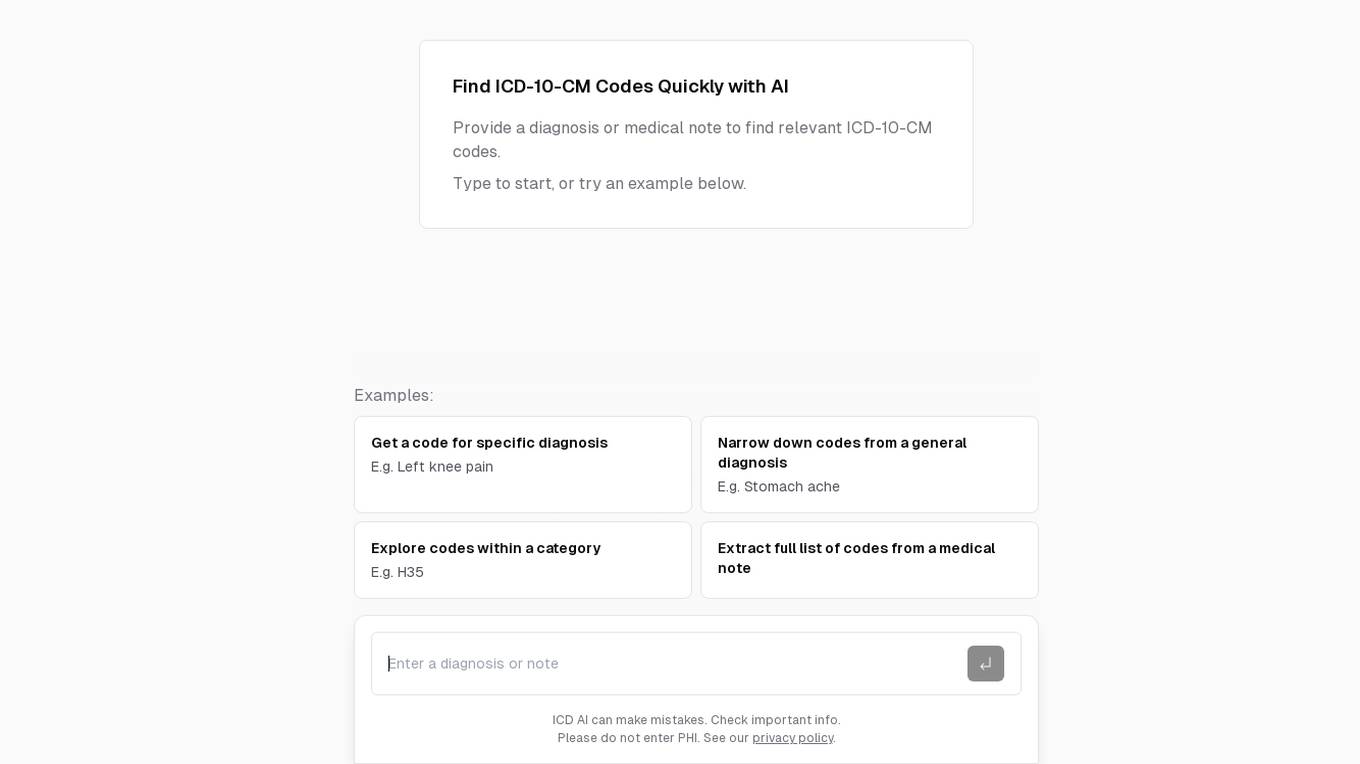
ICD AI
ICD AI is an advanced artificial intelligence tool designed to assist healthcare professionals in accurately assigning diagnostic codes to patient records. The tool utilizes machine learning algorithms to analyze medical data and suggest appropriate ICD codes, streamlining the coding process and reducing errors. With its user-friendly interface and robust features, ICD AI is revolutionizing medical coding practices and improving efficiency in healthcare facilities.
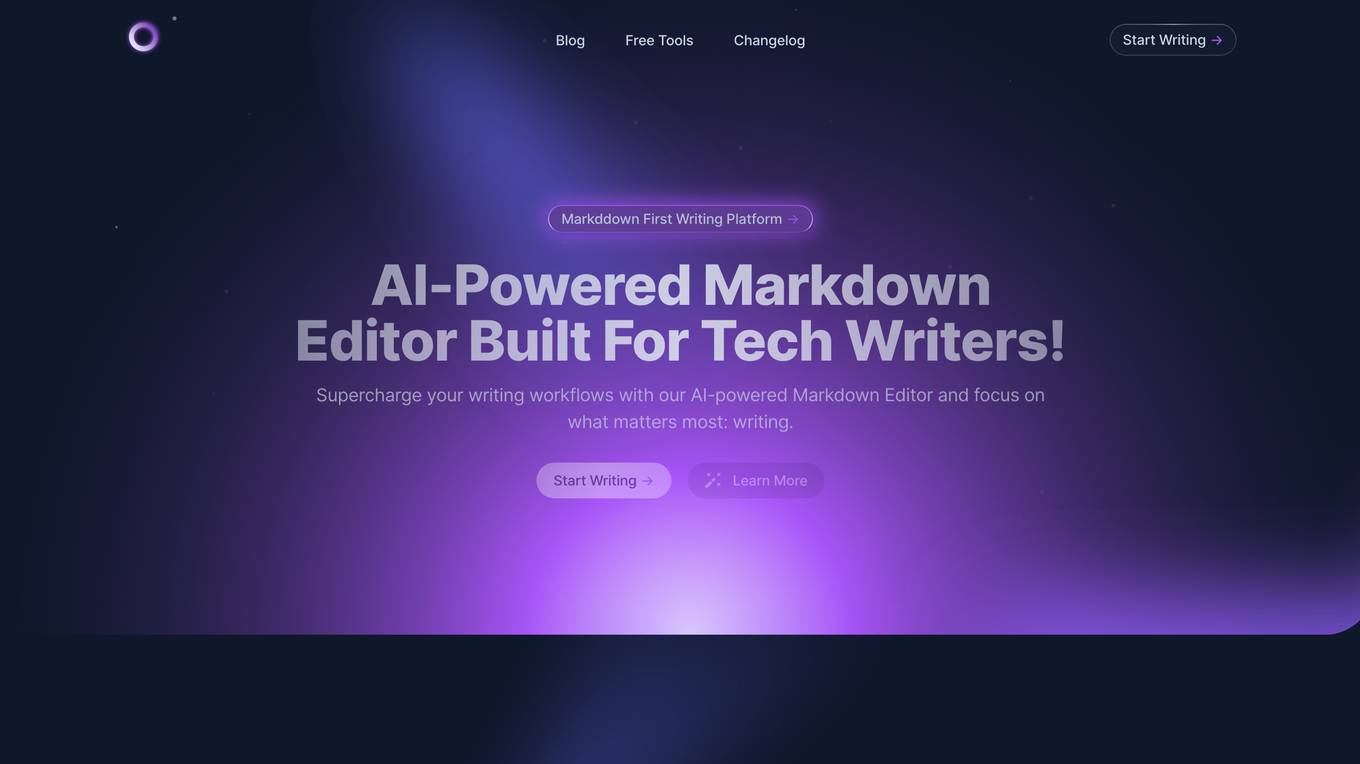
MD Editor
MD Editor is an AI-powered markdown editor designed for tech writers. It offers intelligent suggestions, formatting assistance, and code highlighting to streamline the writing process. With features like article management, powerful editor, sync & share, and customizable experience, MD Editor aims to boost productivity and improve the quality of technical writing. Users can import articles, generate drafts with AI, write from scratch, add code snippets, tables, images, and media, dictate articles using speech recognition, and get article metrics. The platform supports exporting to multiple formats and publishing to various platforms.
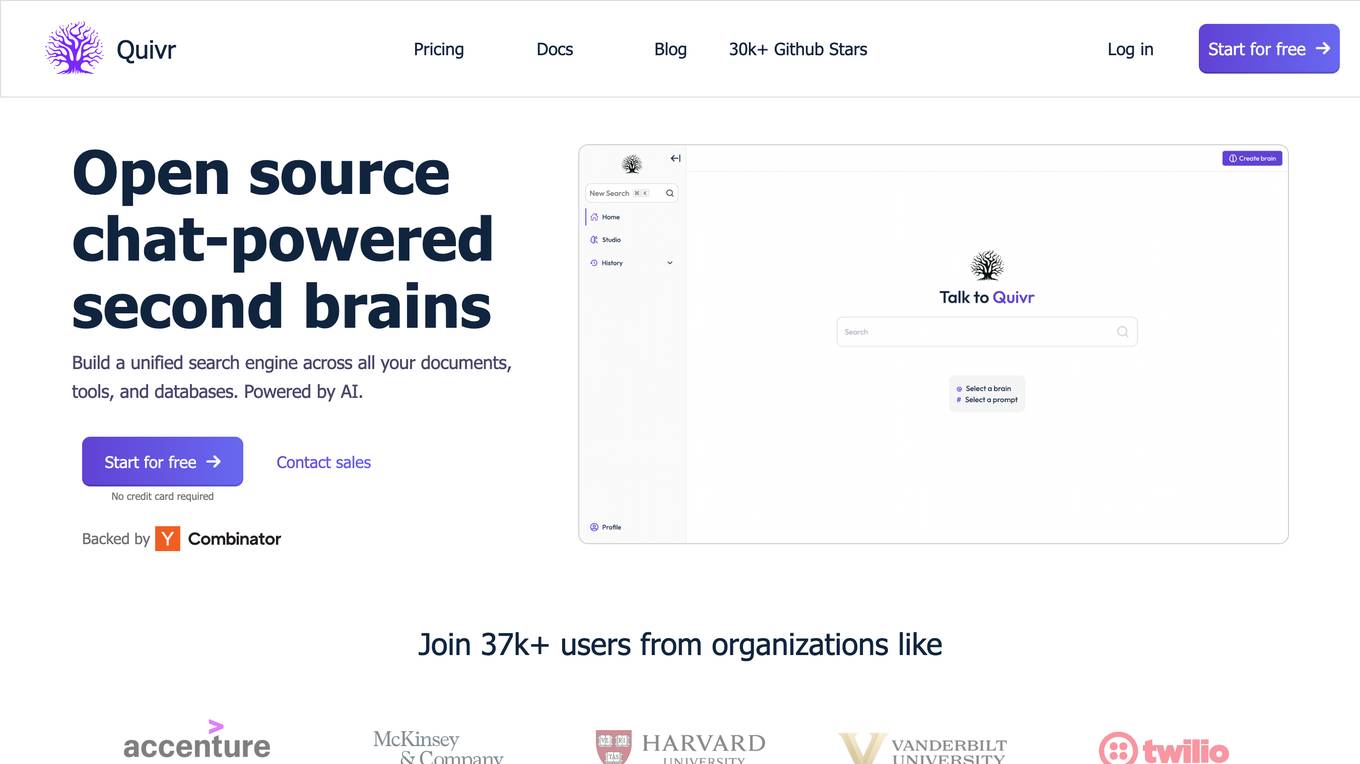
Quivr
Quivr is an open-source chat-powered second brain application that transforms private and enterprise knowledge into a personal AI assistant. It continuously learns and improves at every interaction, offering AI-powered workplace search synced with user data. Quivr allows users to connect with their favorite tools, databases, and applications, and configure their 'second brain' to train on their company's unique context for improved search relevance and knowledge discovery.
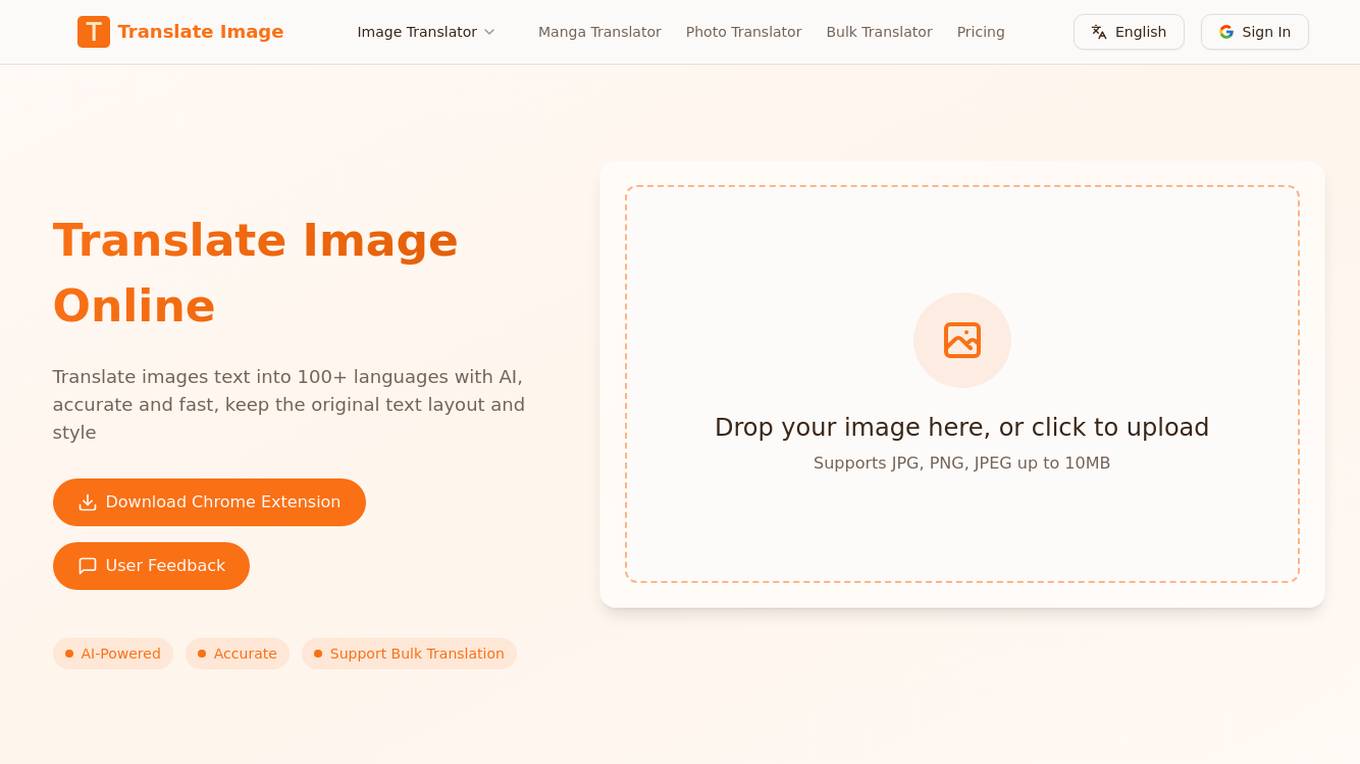
Translate Image Online
Translate Image Online is a free AI image translator that allows users to translate images text into 100+ languages with AI technology. The application preserves the original text layout and style, making it ideal for marketing materials, presentations, infographics, and more. It offers features such as maintaining original layout and formatting, support for 100+ languages, and preserving fonts and styling. The tool is perfect for global marketplace readiness, translating manga and comics, breaking language barriers in research, and professional image translation in three simple steps.
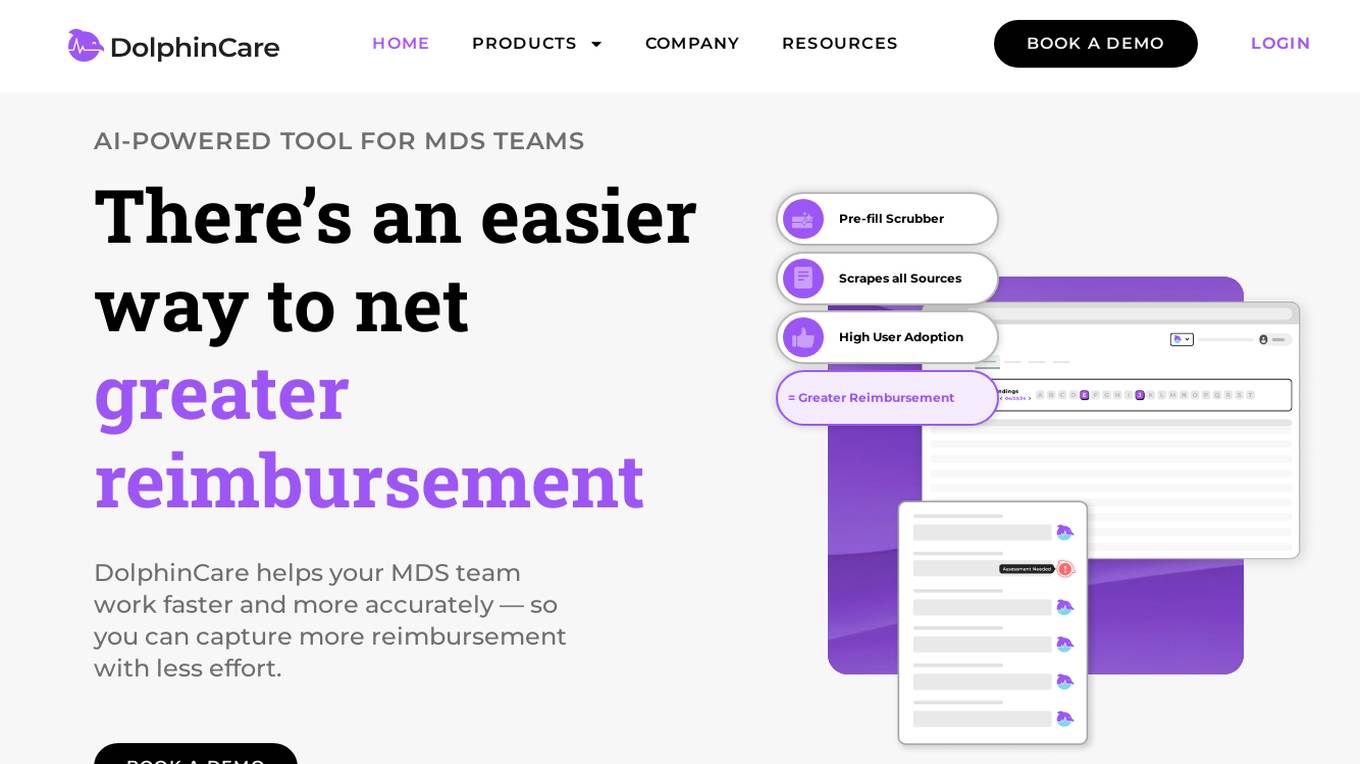
DolphinCare
DolphinCare is an AI-powered tool designed for MDS teams to streamline the MDS process, increase accuracy, and capture more reimbursement with less effort. It offers features such as pre-fill scrubber, high user adoption, auto-suggestions in EHR, regional dashboard, and IPA alerts. DolphinCare is a commitment-free solution that enhances MDS coordination, regional management, and SNF operations by leveraging AI models and real-time data scraping. The tool is praised for its accuracy, efficiency, and user-friendly interface, making it a valuable asset for healthcare facilities seeking to optimize their MDS workflow.
0 - Open Source Tools
20 - OpenAI Gpts
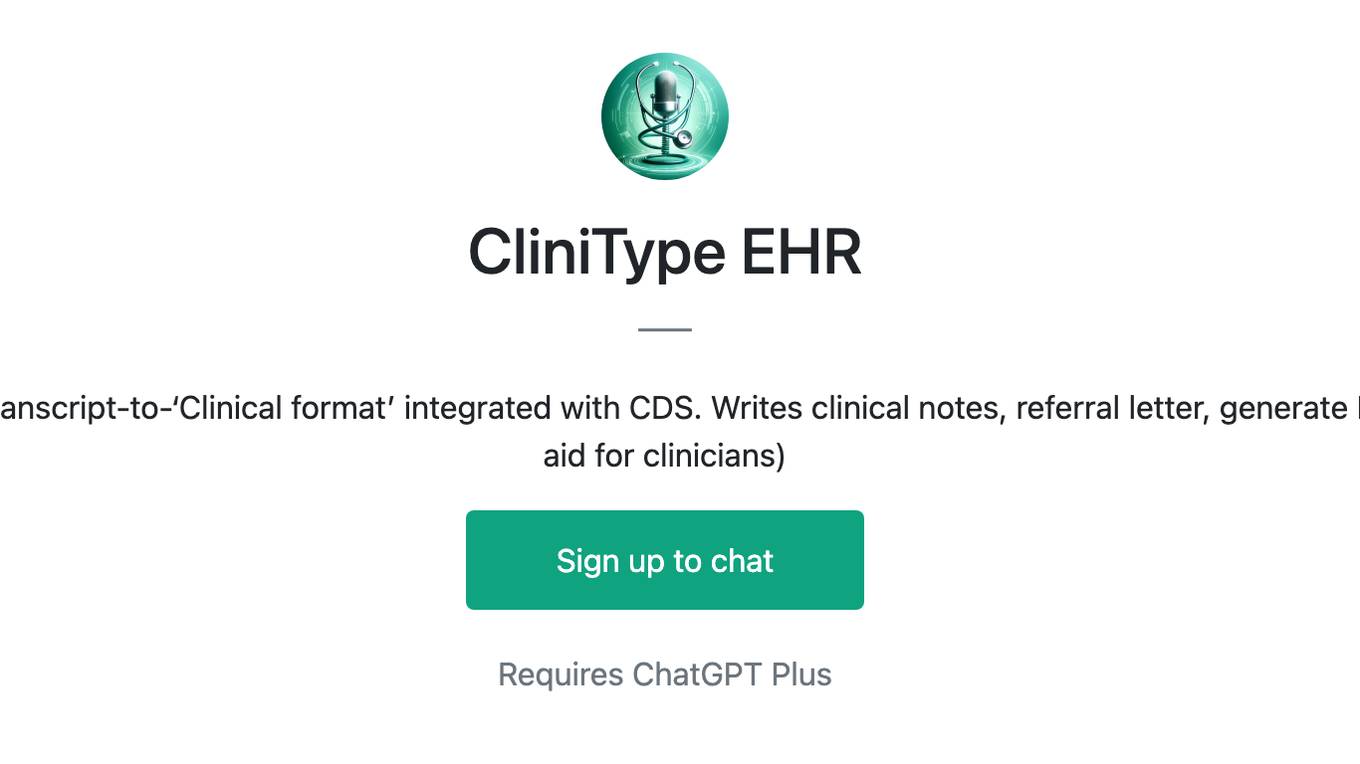
CliniType EHR
Voice-to-text, Vision-to-text transcription, Transcript-to-‘Clinical format’ integrated with CDS. Writes clinical notes, referral letter, generate PDF,prepare discharge summary. (Ultimate aid for clinicians)
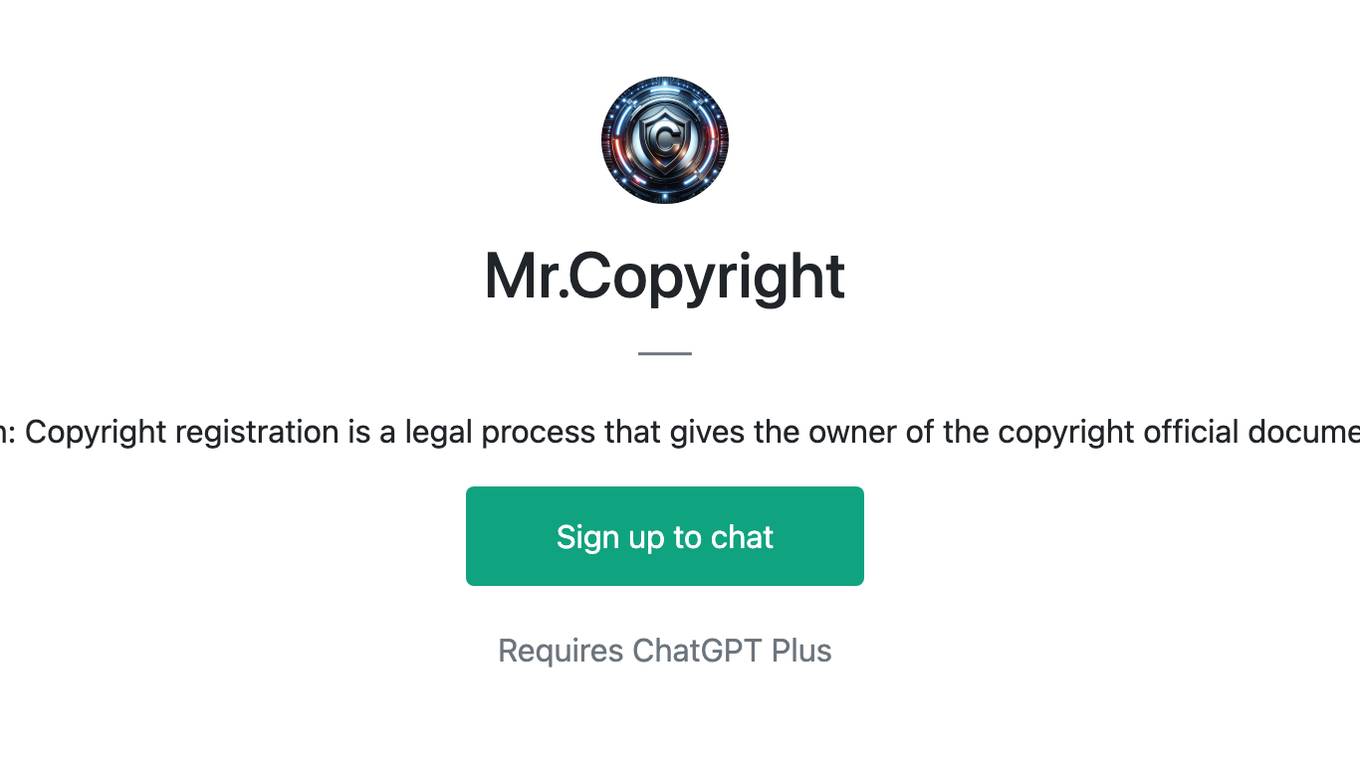
Mr.Copyright
ready to use: Copyright registration: Copyright registration is a legal process that gives the owner of the copyright official documentation of their ownership rights.
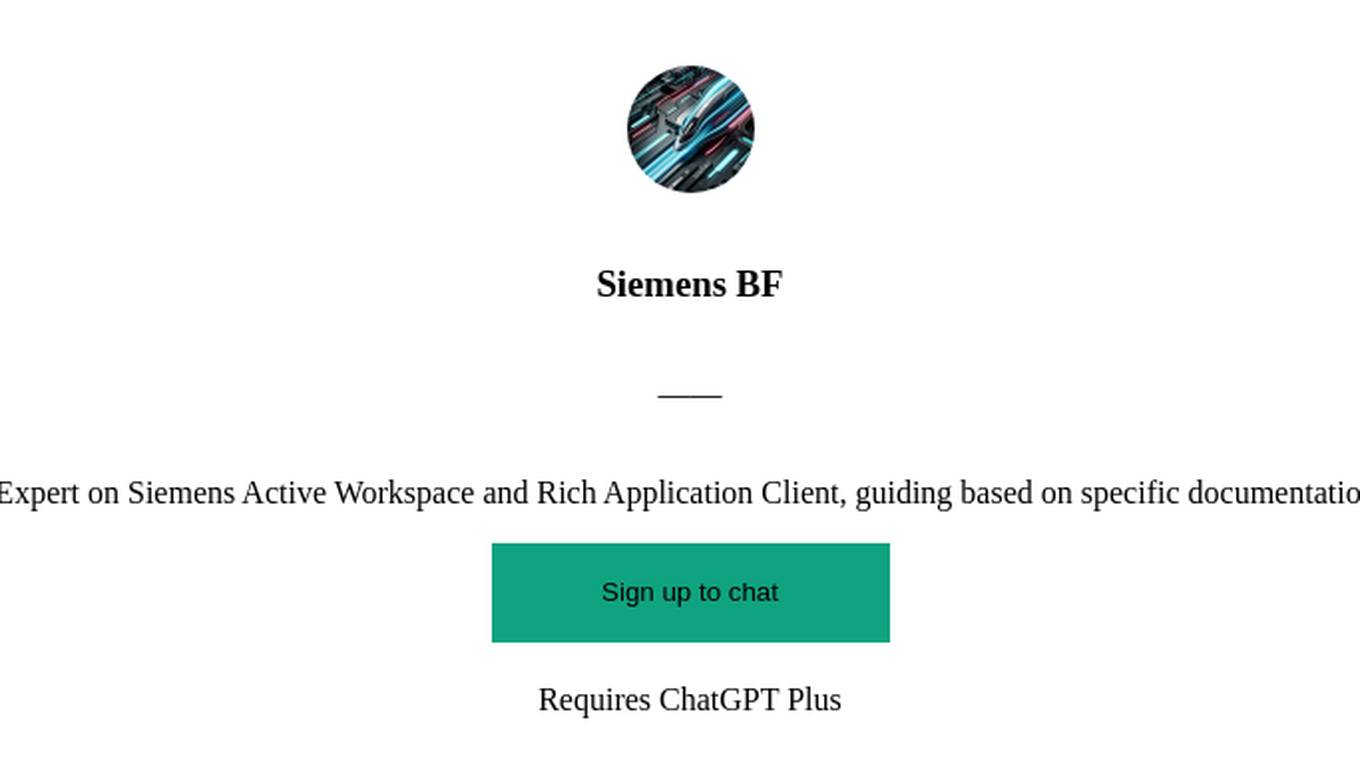
Siemens BF
Expert on Siemens Active Workspace and Rich Application Client, guiding based on specific documentation.
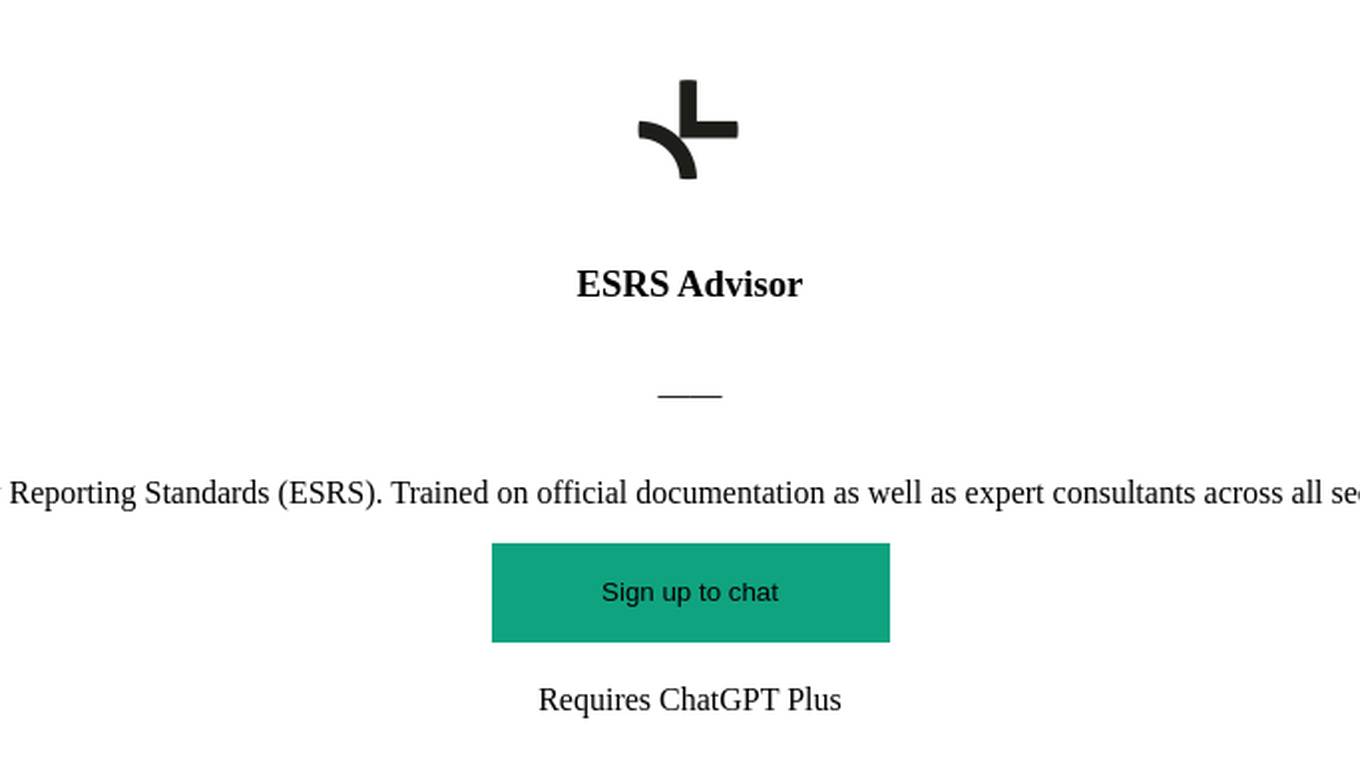
ESRS Advisor
Expert in European Sustainability Reporting Standards (ESRS). Trained on official documentation as well as expert consultants across all sectors. Includes voluntary standards.
Dror Globerman's GPT Tech Support
Your go-to assistant for everyday tech support and guidance.
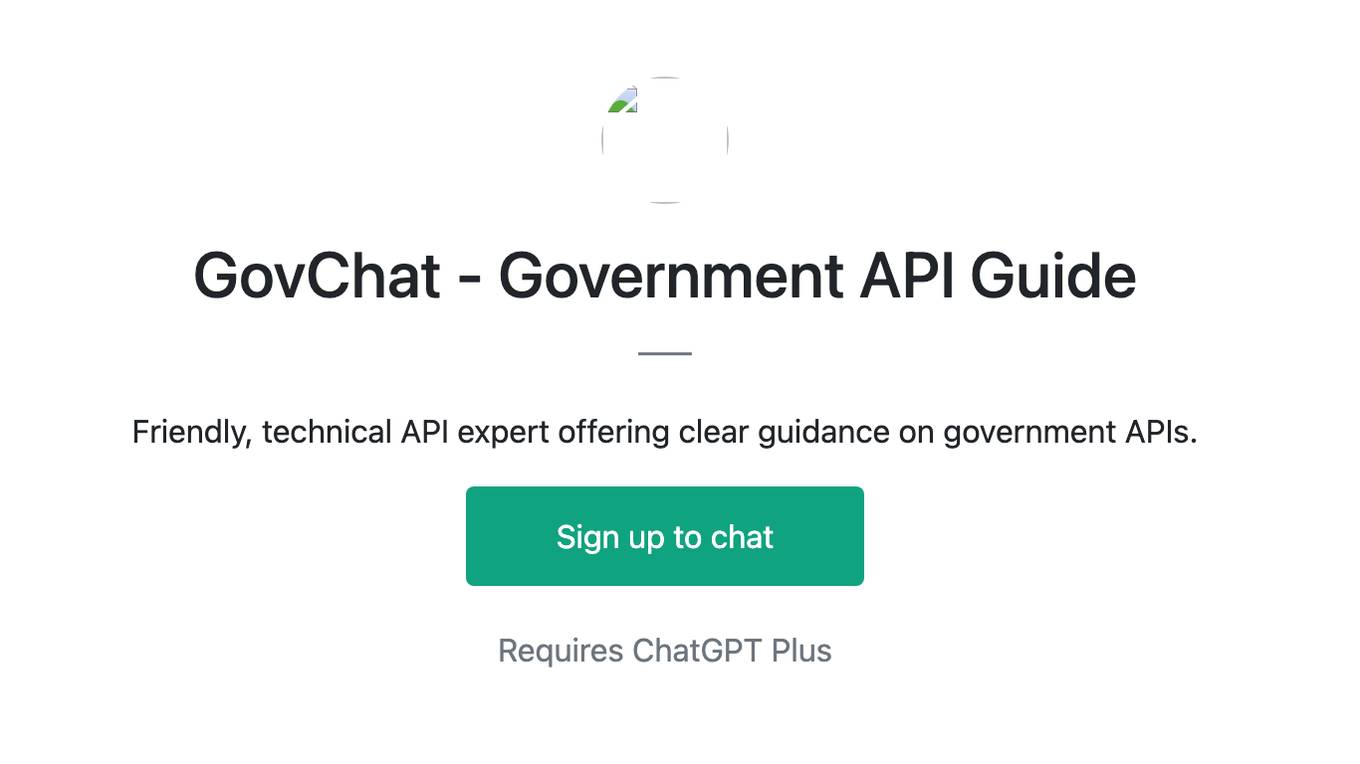
GovChat - Government API Guide
Friendly, technical API expert offering clear guidance on government APIs.
